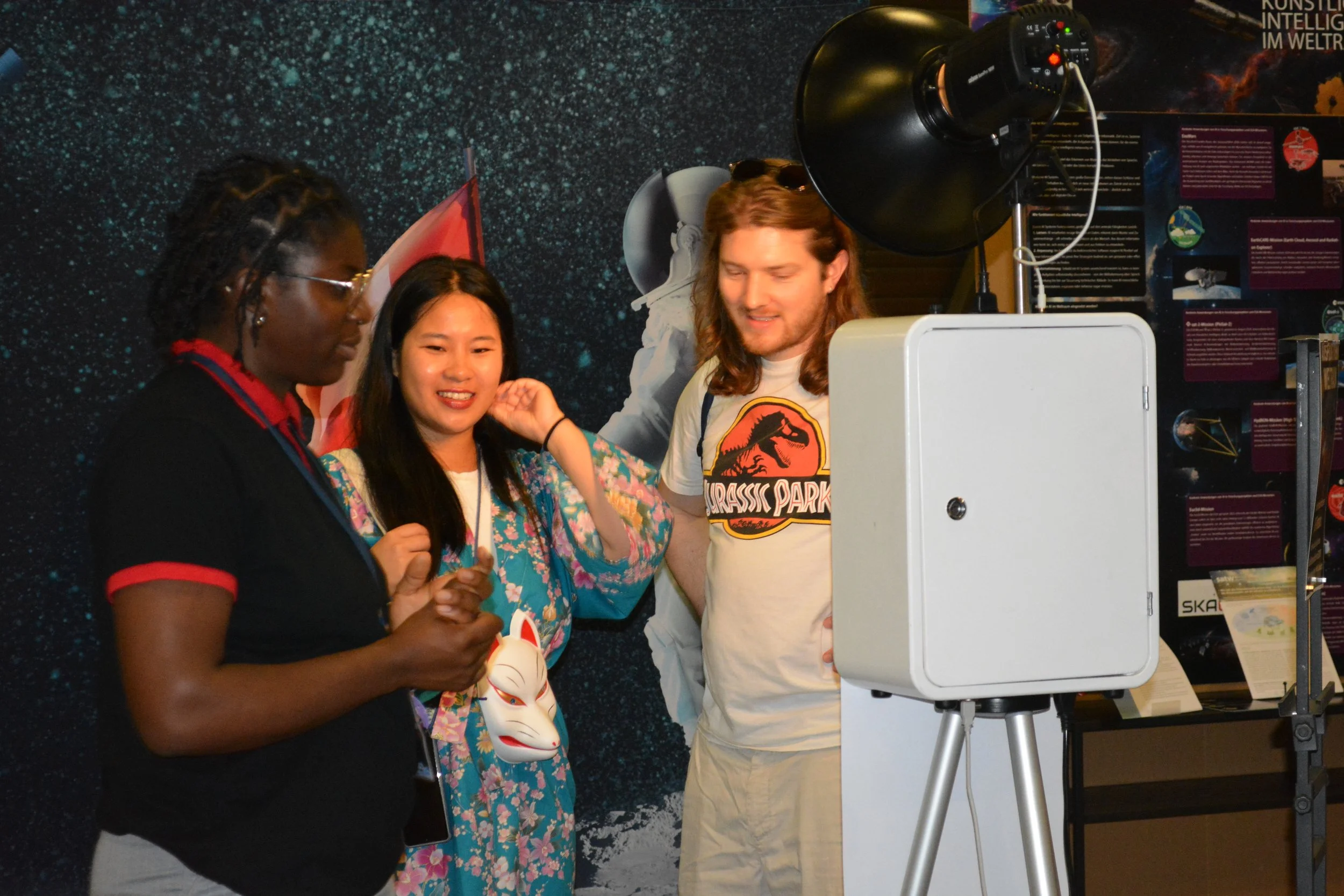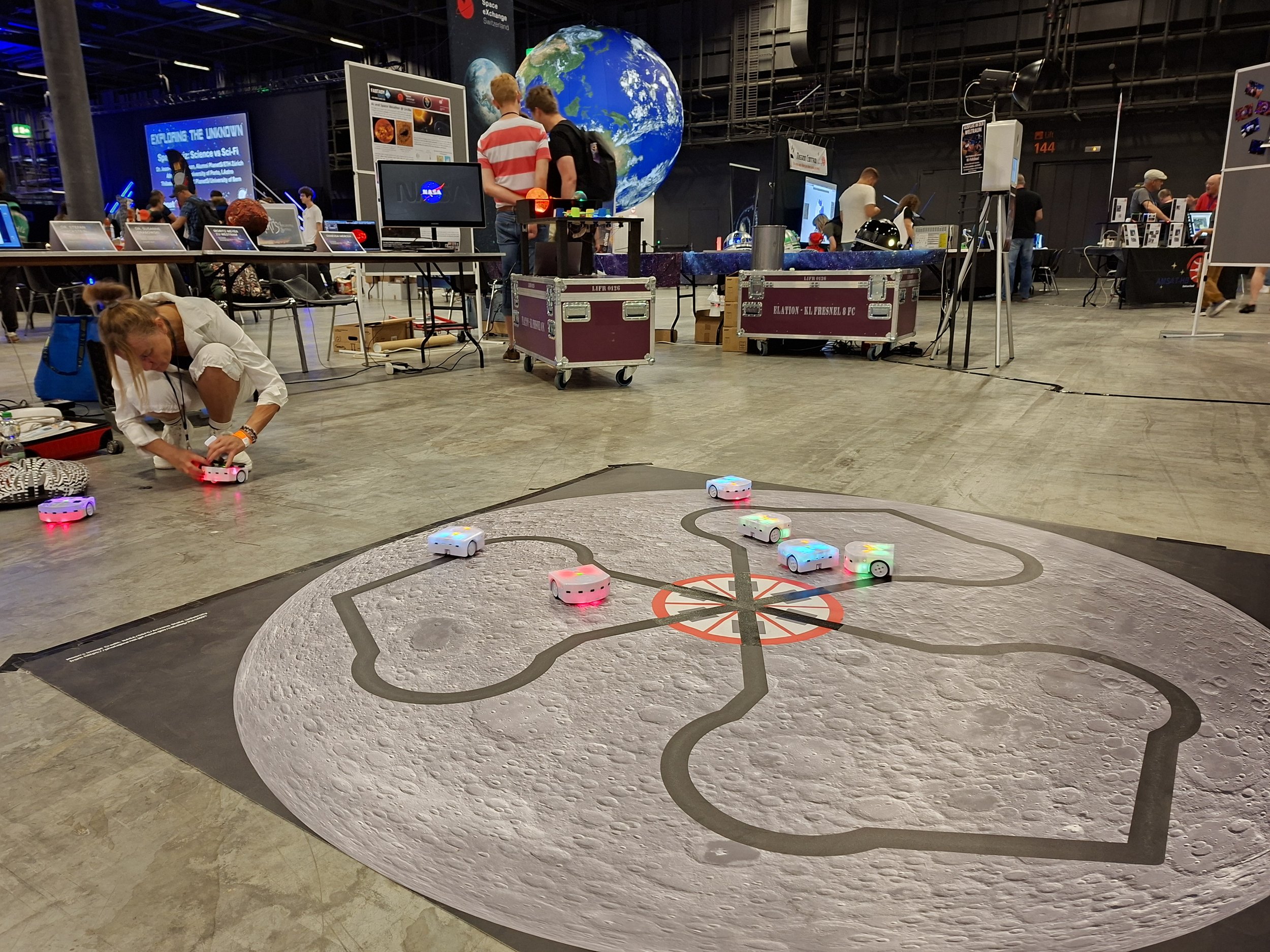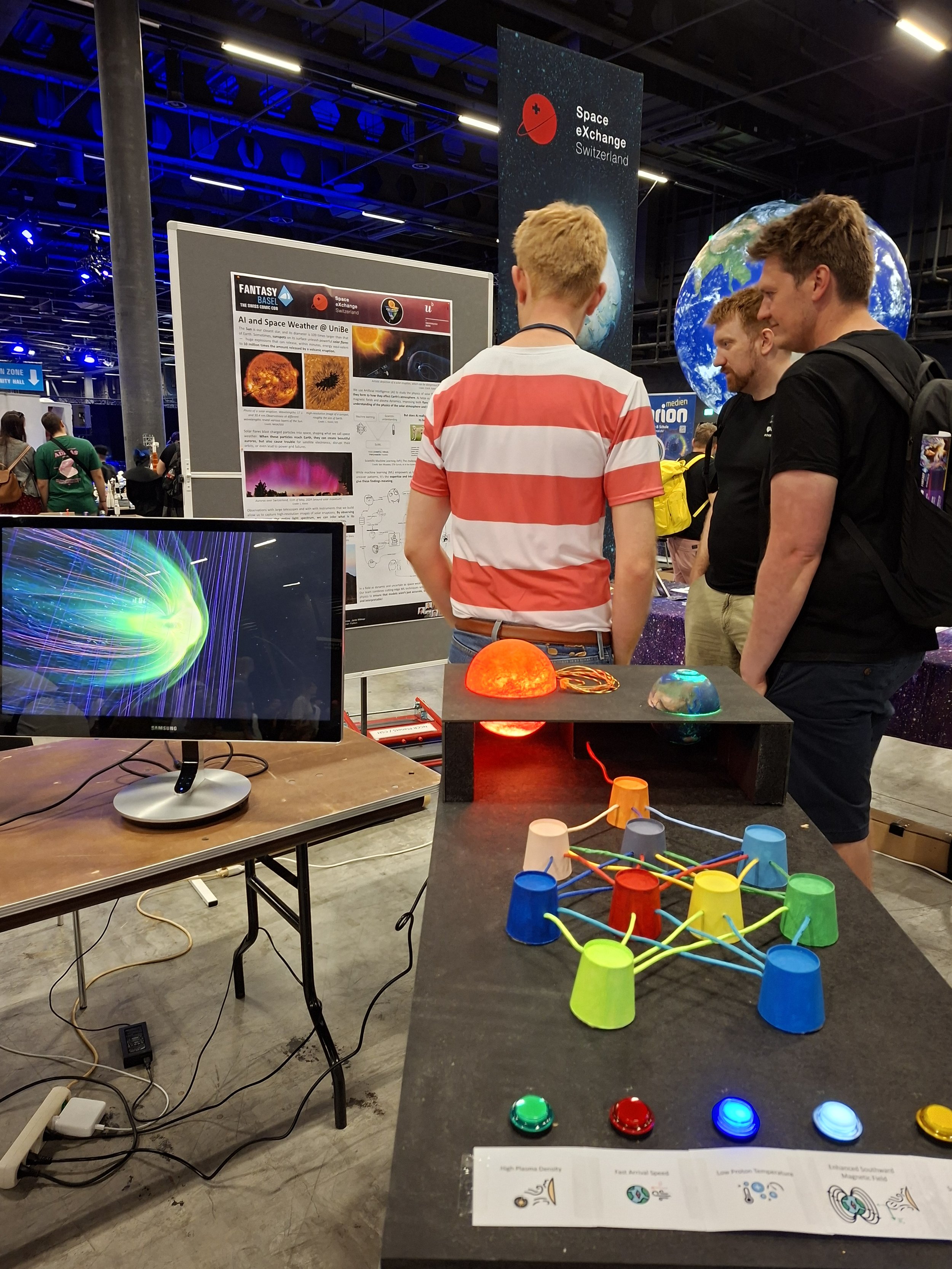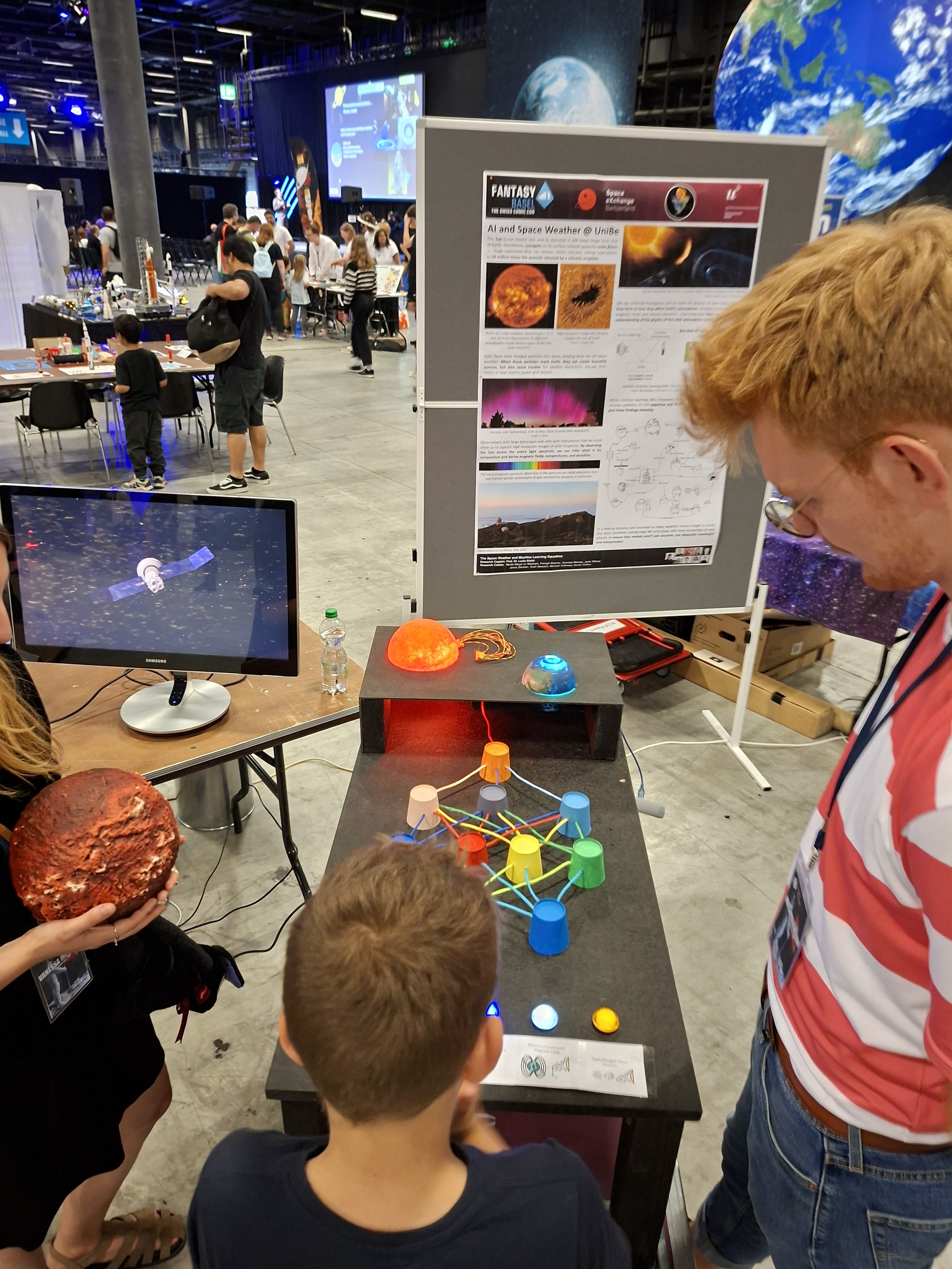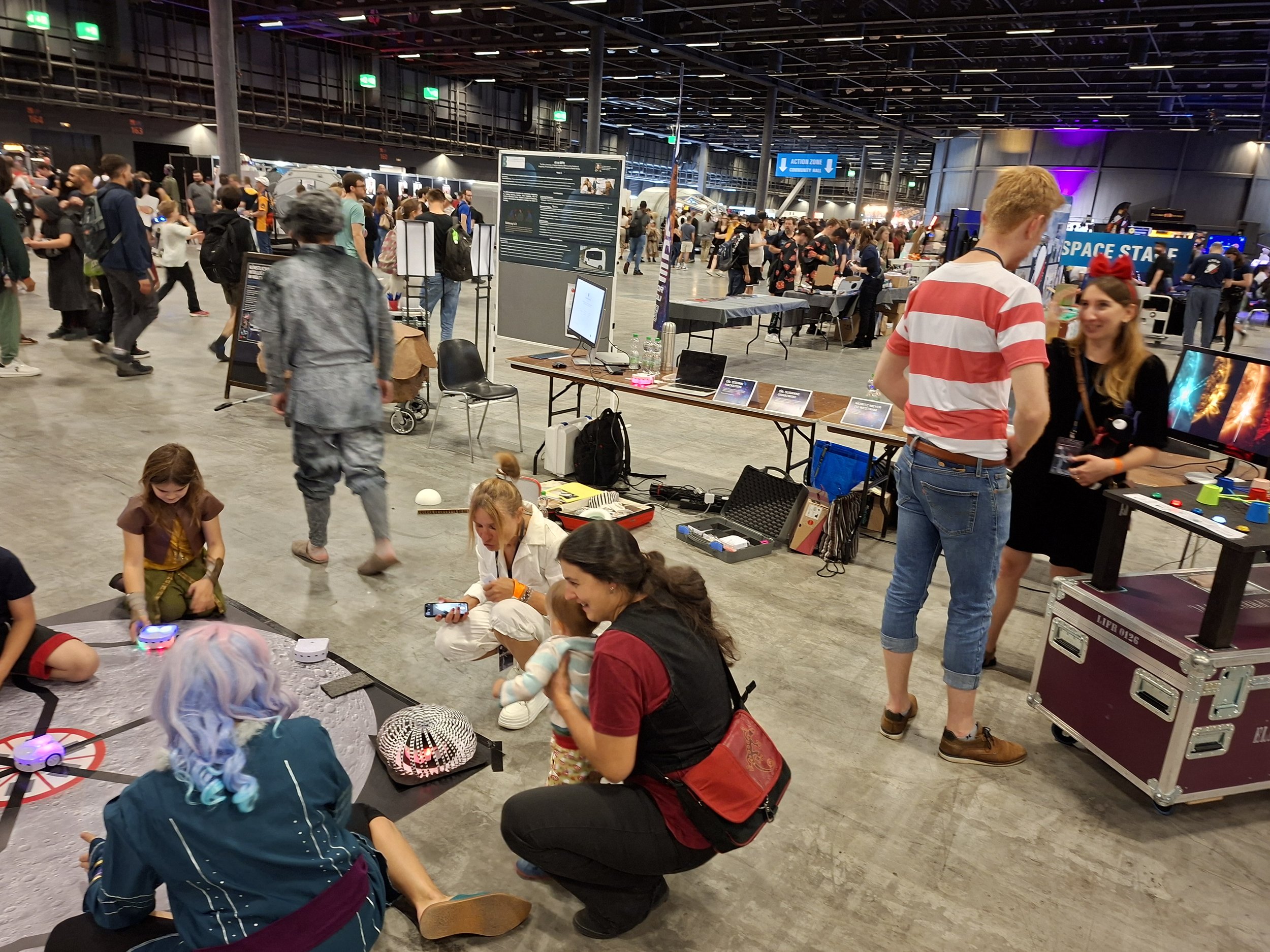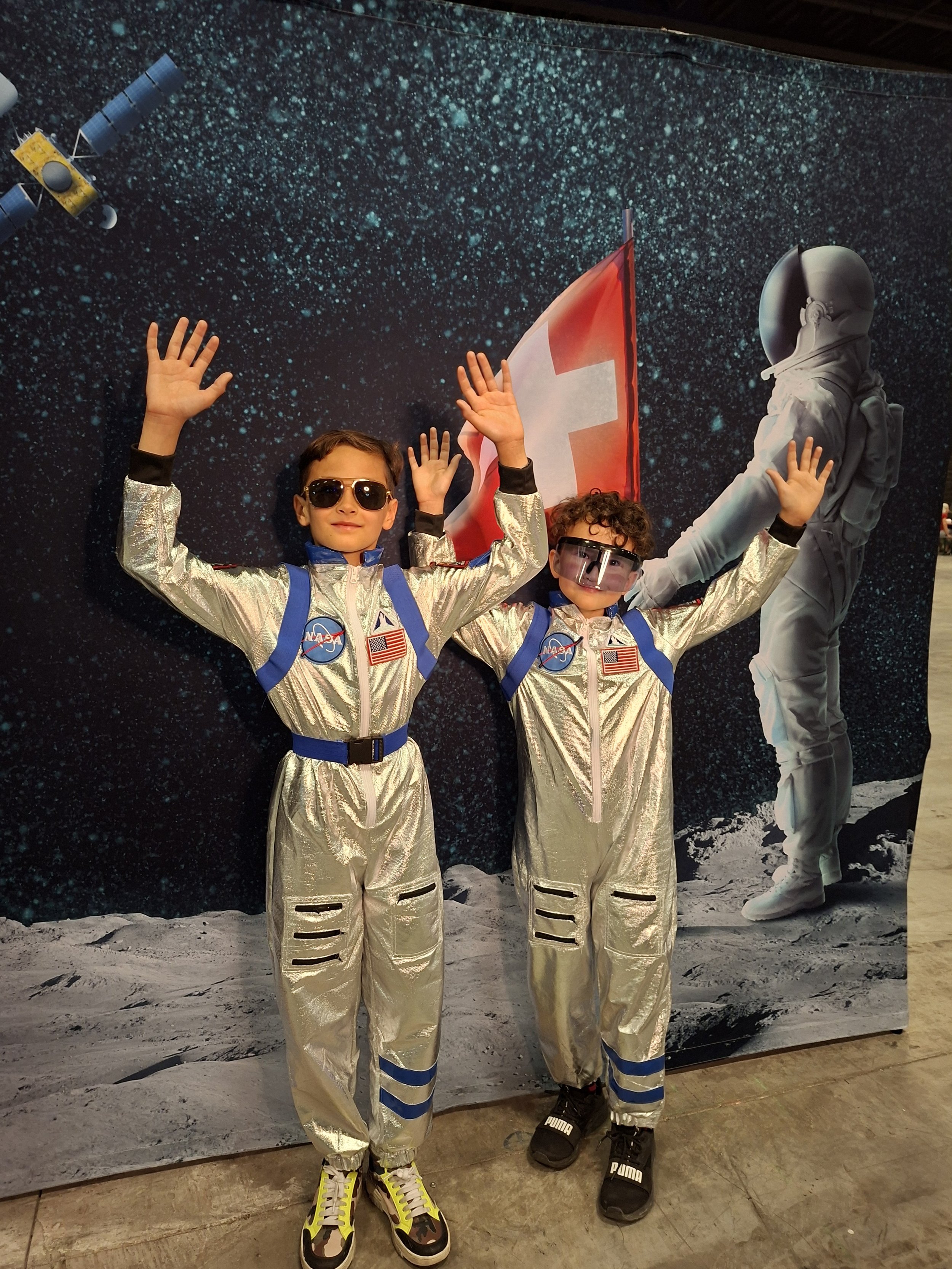
Current News and Press (2025)
To explore all our past news and press releases (2024 and earlier), click here.
October 2025 News: Switzerland is honored to be a candidate to host the IAC Congress 2029
Switzerland is honored to be a candidate to host the International Astronautical Congress (IAC) in 2029. The announcement was made during the Host Summit at IAC 2025 in Sydney, where we shared our vision for welcoming the global space community to Geneva. As a country with a strong and growing space ecosystem—home to over 130 companies and institutions active in areas such as security, connectivity, and aerospace innovation—we believe Switzerland offers a unique setting for this prestigious event. Geneva, with its central location in Europe, tradition of diplomacy, and vibrant research and industry landscape, would provide an inspiring backdrop for international collaboration in space. We look forward to engaging with the global and Swiss space communities throughout this candidacy process, and to embarking on this exciting journey together with industry, academia, and other key stakeholders.
The new programm of the Cosmos Club 2026 is now available!
The Cosmos Club in Dübendorf invites you to explore the wonders of space through our new program, now available online. This season features fascinating talks on topics such as gravitational waves, the search for life’s building blocks, and the mysteries of the universe. Join us as we continue to share knowledge and inspire curiosity about astronomy and space exploration.
SXS ESA CAREER EVENTS
The four MEET ESA career events held across Switzerland in October 2025 were an outstanding success, bringing together more than 400 students eager to discover opportunities in the space sector. These events fostered meaningful exchanges between ESA alumni, professionals, and students, creating valuable connections and inspiring future careers. Highlights included engaging presentations, one-to-one career sessions, and an exclusive interview with Swiss astronaut Claude Nicollier, who shared his experience and emphasized the importance of the next generation of explorers. We extend our heartfelt thanks to Andrew Kane from ESA for his long-standing support and dedication to guiding future talents. As we look ahead, we are excited to continue this dialogue and look forward to receiving many Swiss applications for ESA opportunities.
ESA Career 2025 x Claude Nicollier
SXS NEWS
“FOCUS SPACE” Serie - produced by Space Exchange Switzerland
Through a new series, called “Focus Space”, shared on our social networks since March 2025, we are highlighting new projects or stories from the space sector. These short, engaging, and professionally produced videos aim to share inspiring company journeys with a broad audience of space enthusiasts.
The first episode, available on our platforms, features the successful launch of the Clustergate-1 platform, designed by the Swiss-startup DPhi Space. In the second episode, Julien Bonnaud, Swiss delegate for ESA’s Technology Harmonisation Advisory Group (THAG), shares his mentoring role to support Swiss stakeholders strengthen their position on the European space landscape. Our third episode with Lukas Schmid just came out!
Until then, click below to explore these interviews!
FOCUS SPACE EP.1- Meet Dphi Space DPhi Space has reached a major milestone with the successful launch of its Clustergate platform on March 15. Aziz shares the story behind Clustergate-1, a Swiss-made shared platform for hosted payloads, explaining how it operates, the challenges faced before launch, and offering valuable advice for aspiring space entrepreneurs.
FOCUS SPACE EP.2 – Meet Julien Bonnaud, Scientific Advisor at Space Exchange Switzerland and Swiss delegate to ESA’s Technology Harmonisation Advisory Group (THAG)
Julien recently returned from the ESA Power Workshop 2025, where he contributed to key discussions on European Space Technology Harmonisation—a process that aligns research and development efforts across the space sector to strengthen Europe’s technological capabilities and global competitiveness. In this episode, Julien explains why harmonisation is crucial, what benefits it brings to Swiss stakeholders, and how they can actively contribute. He also shares how he supports Swiss industries in reinforcing their position within the European space landscape.
FOCUS SPACE EP.3 – Meet Lukas Schmid, Outreach and Public Engagement at Space Exchange Switzerland and Research Associate at FHNW
Lukas highlights the crucial role of public awareness in Switzerland’s space journey—from showcasing the country’s position in the global space sector to increasing the visibility of Swiss companies and ensuring alignment with ESA’s technology needs. Outreach is also about inspiring the next generation of Swiss space experts, with events like Fantasy Basel reaching nearly 95,000 people this year. Lukas shares insights on why these efforts matter and how they help keep the Swiss space ecosystem innovative and connected.
Space Community Days - 26 & 27 May 2025, SwissTech Convention Center
On Monday and Tuesday, 26–27 May 2025, we hosted the Space Community Days at the SwissTech Convention Center, in Lausanne. It is our biannual event that brings together the entire Swiss space ecosystem. Over 300 participants joined us across the two days, taking part in 34 presentations and more than 250 One-to-One Meetings. It was a vibrant hub of exchange, collaboration, and innovation!
📸: Phil Suarez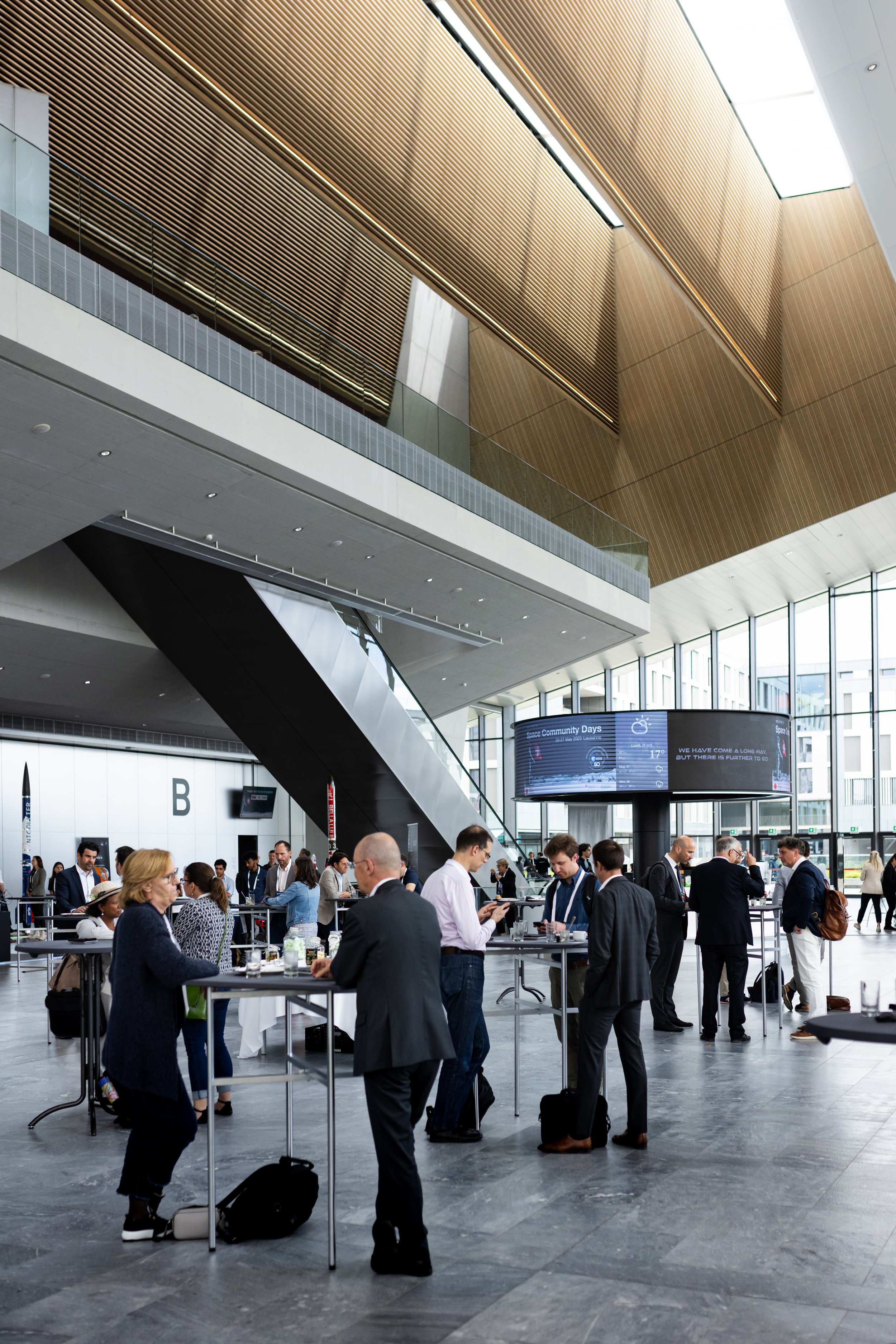
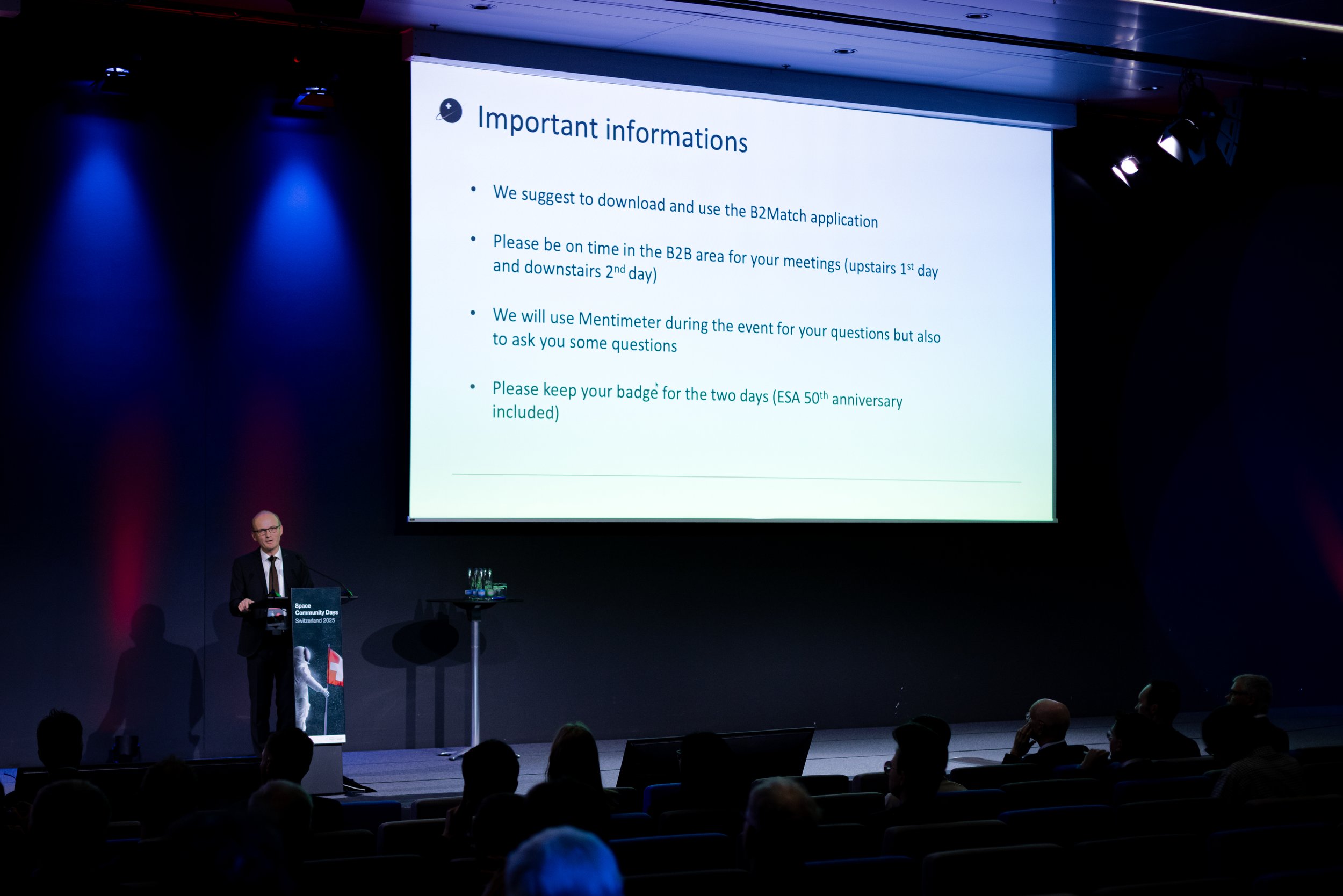
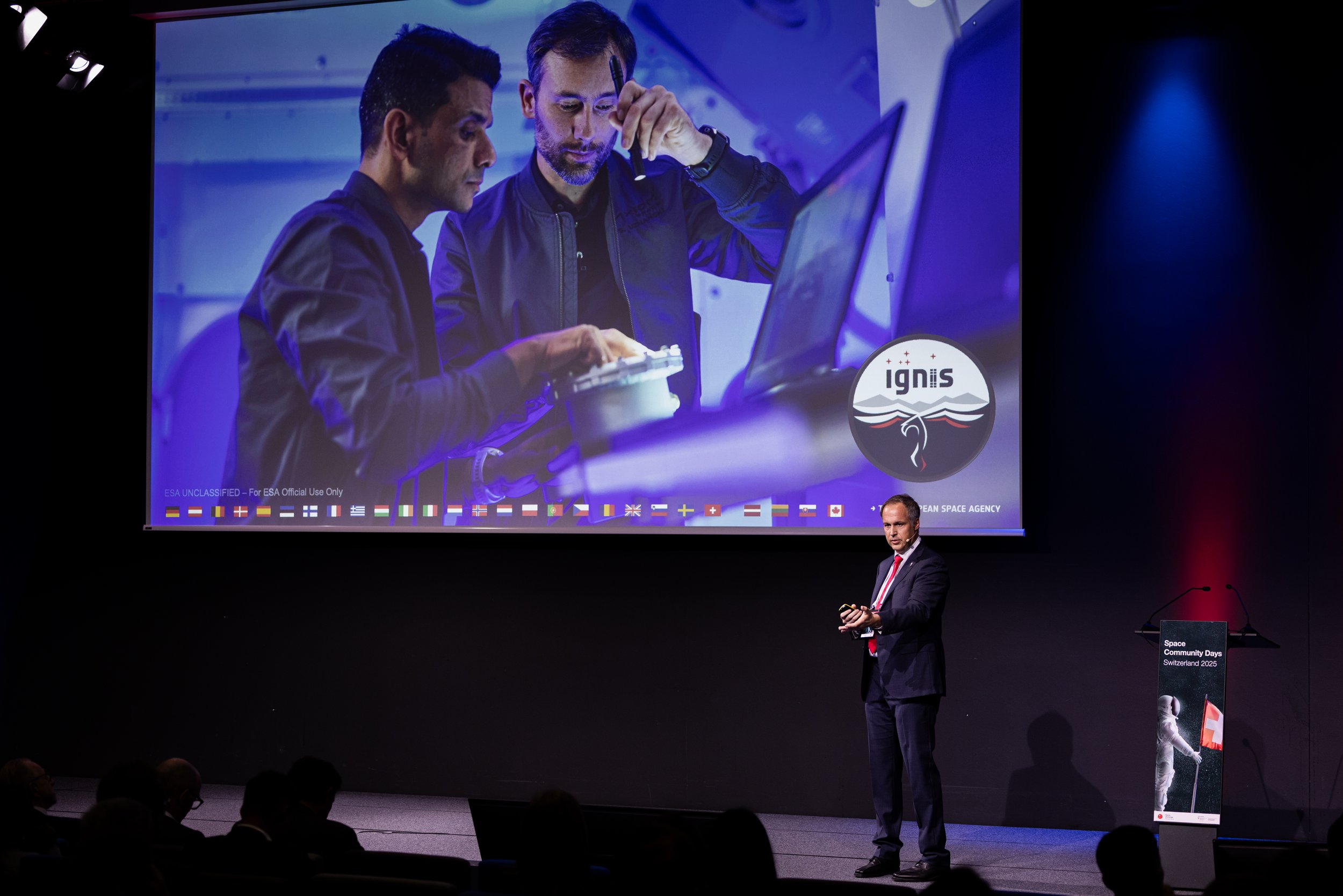

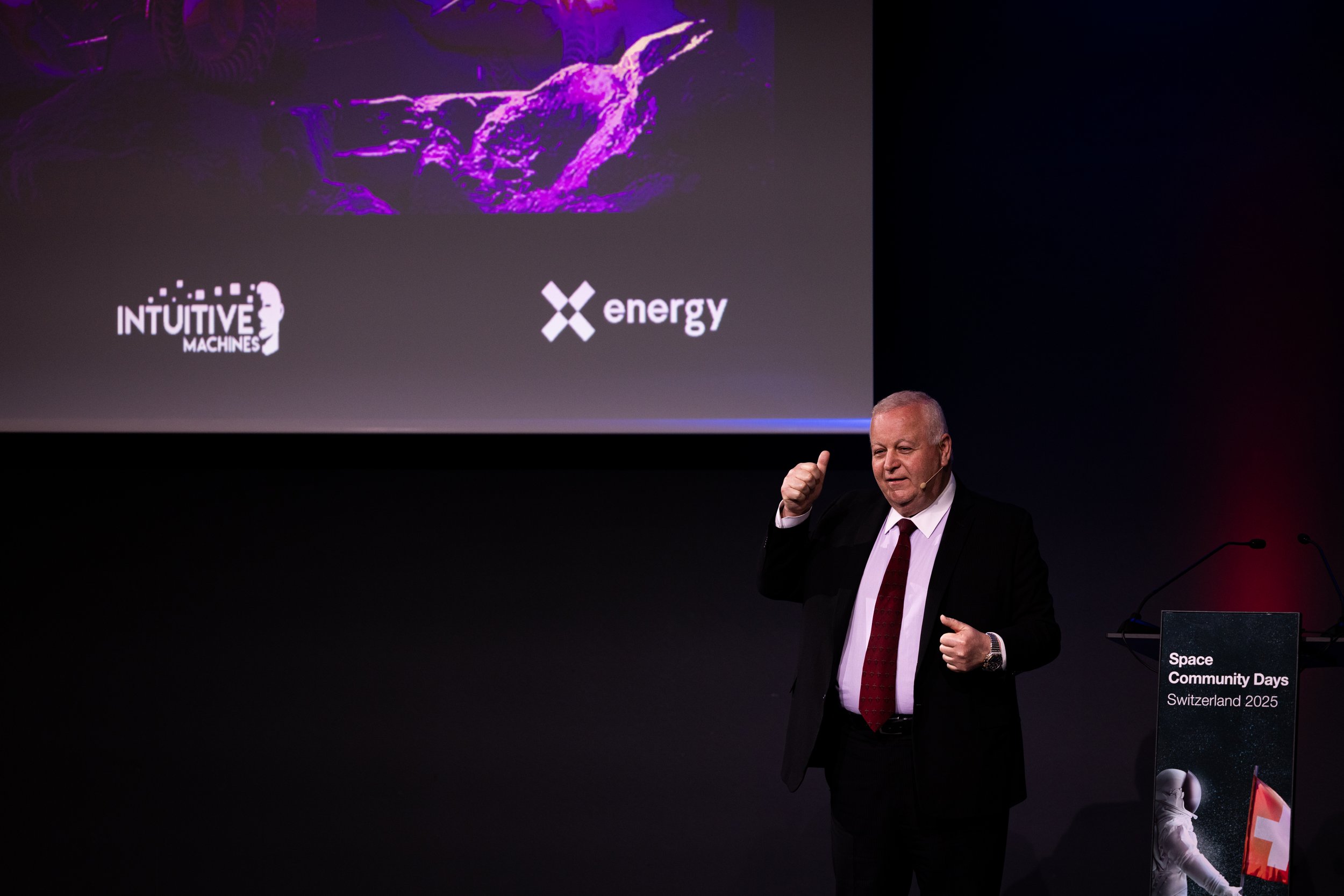
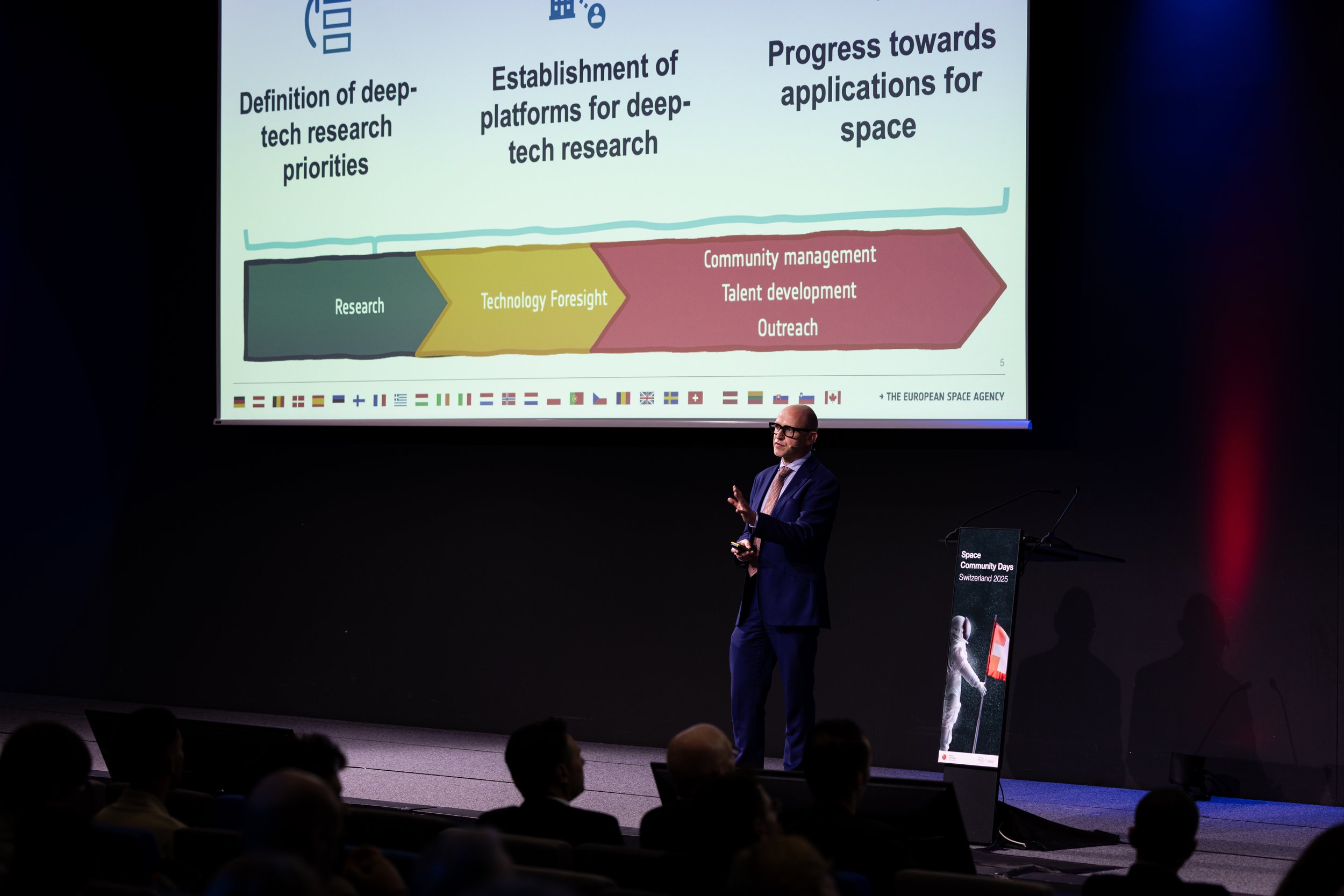

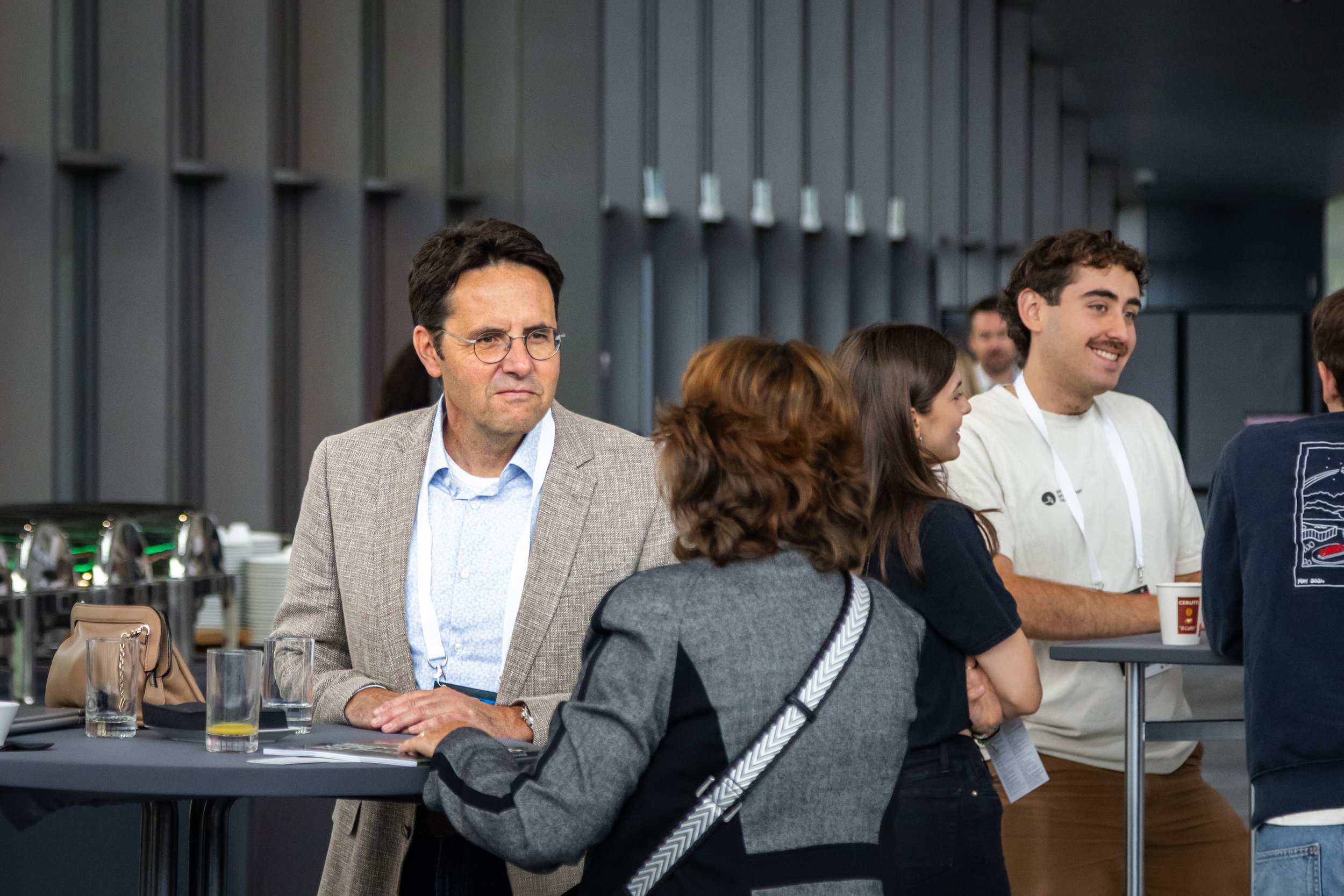
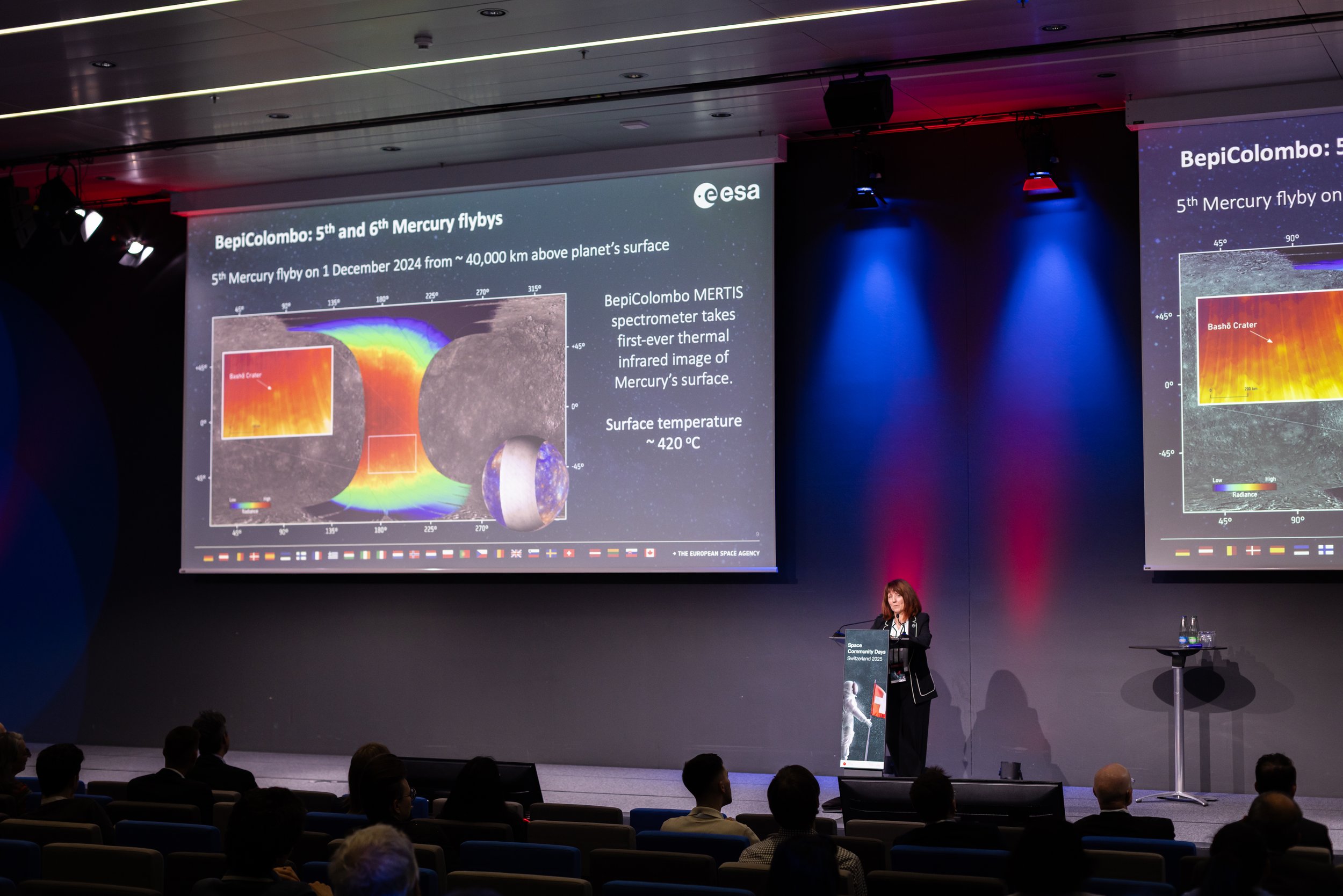
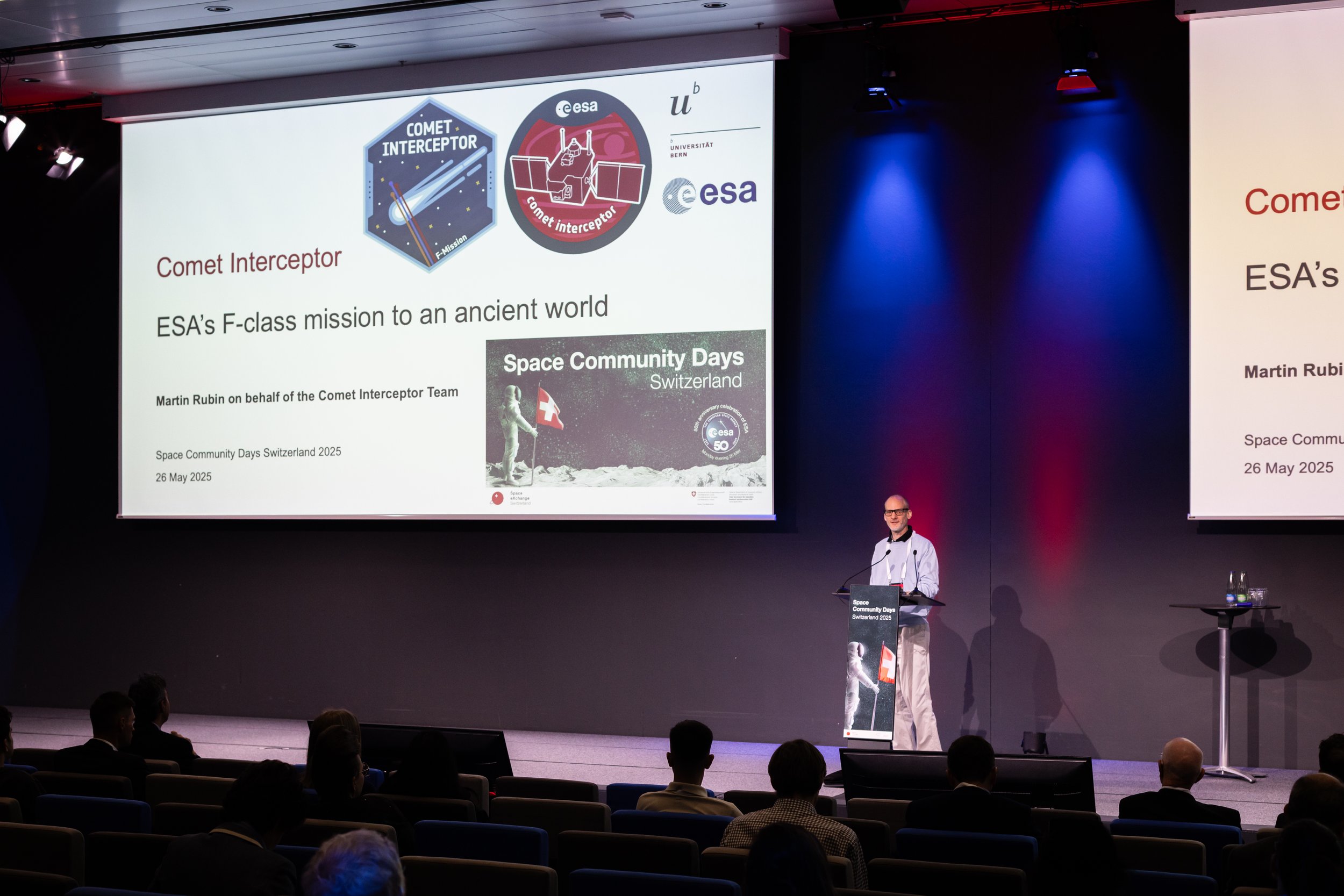
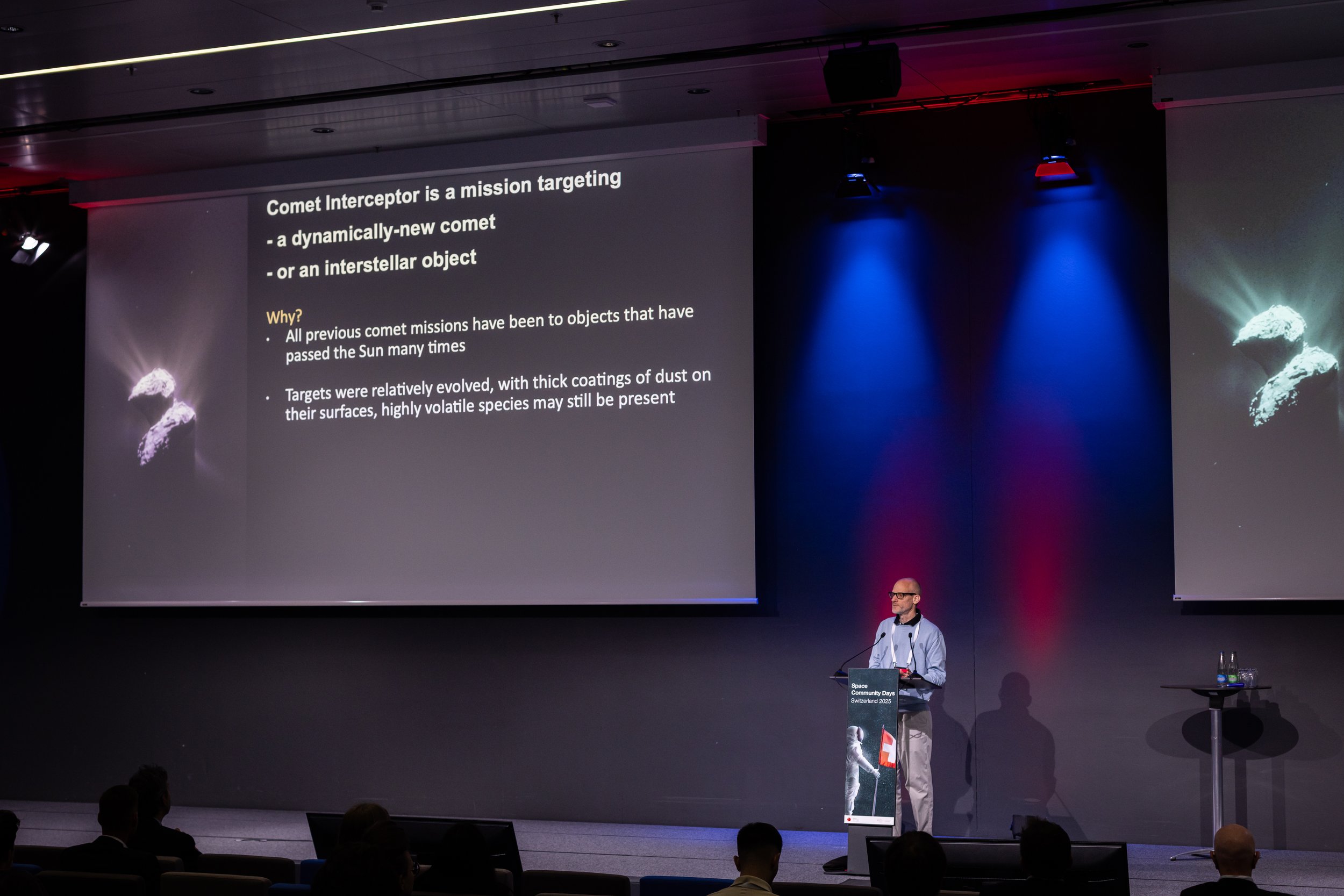
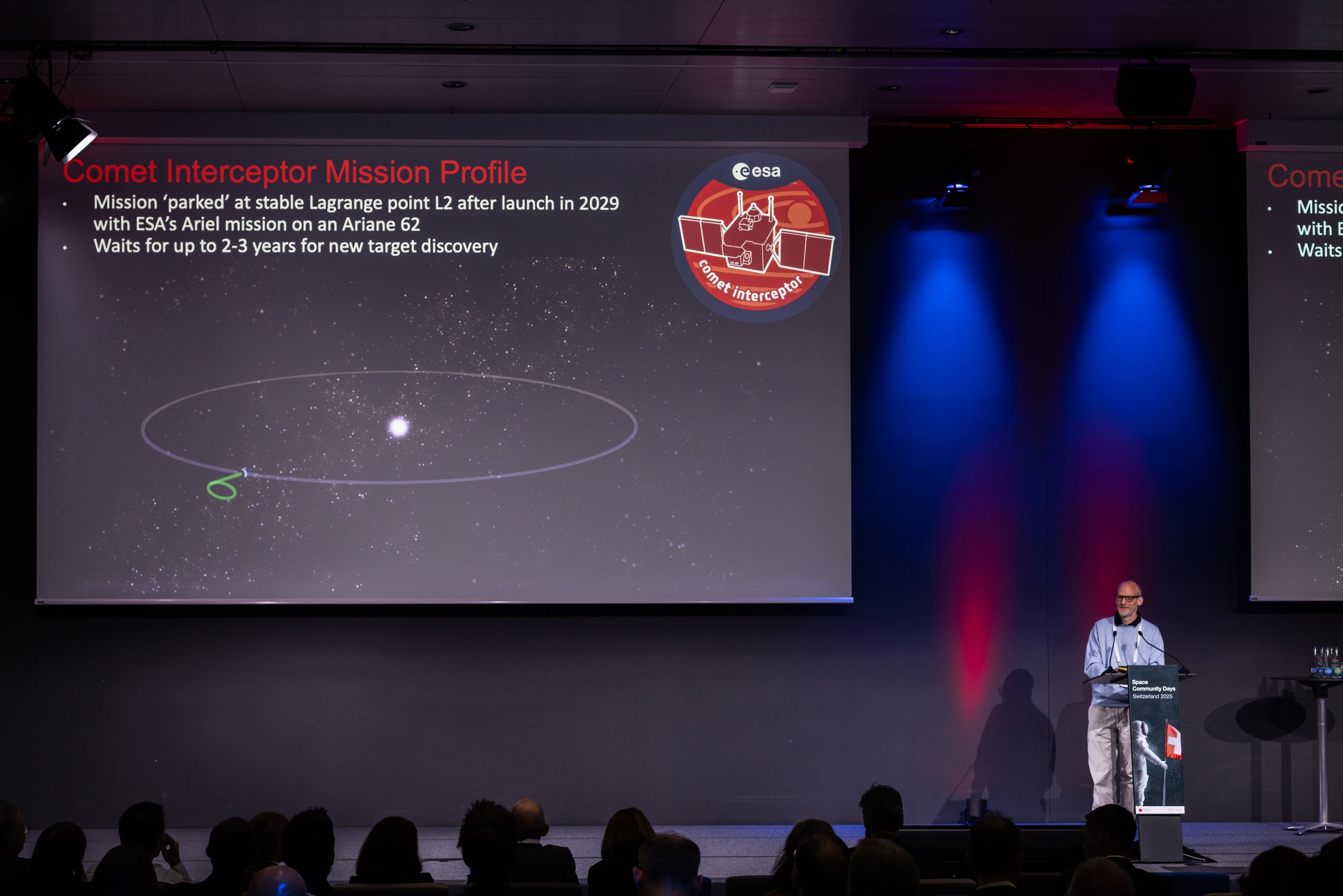
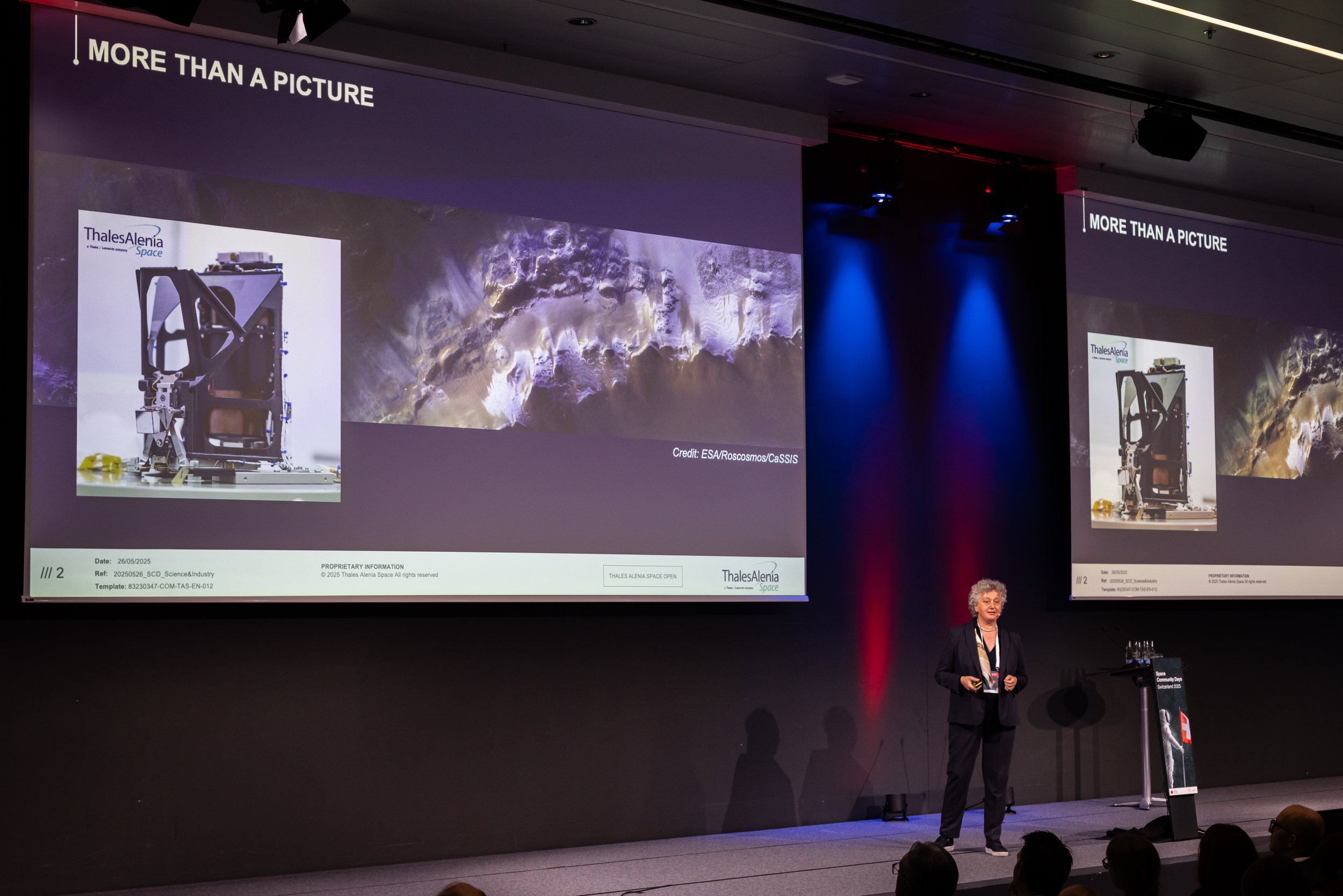
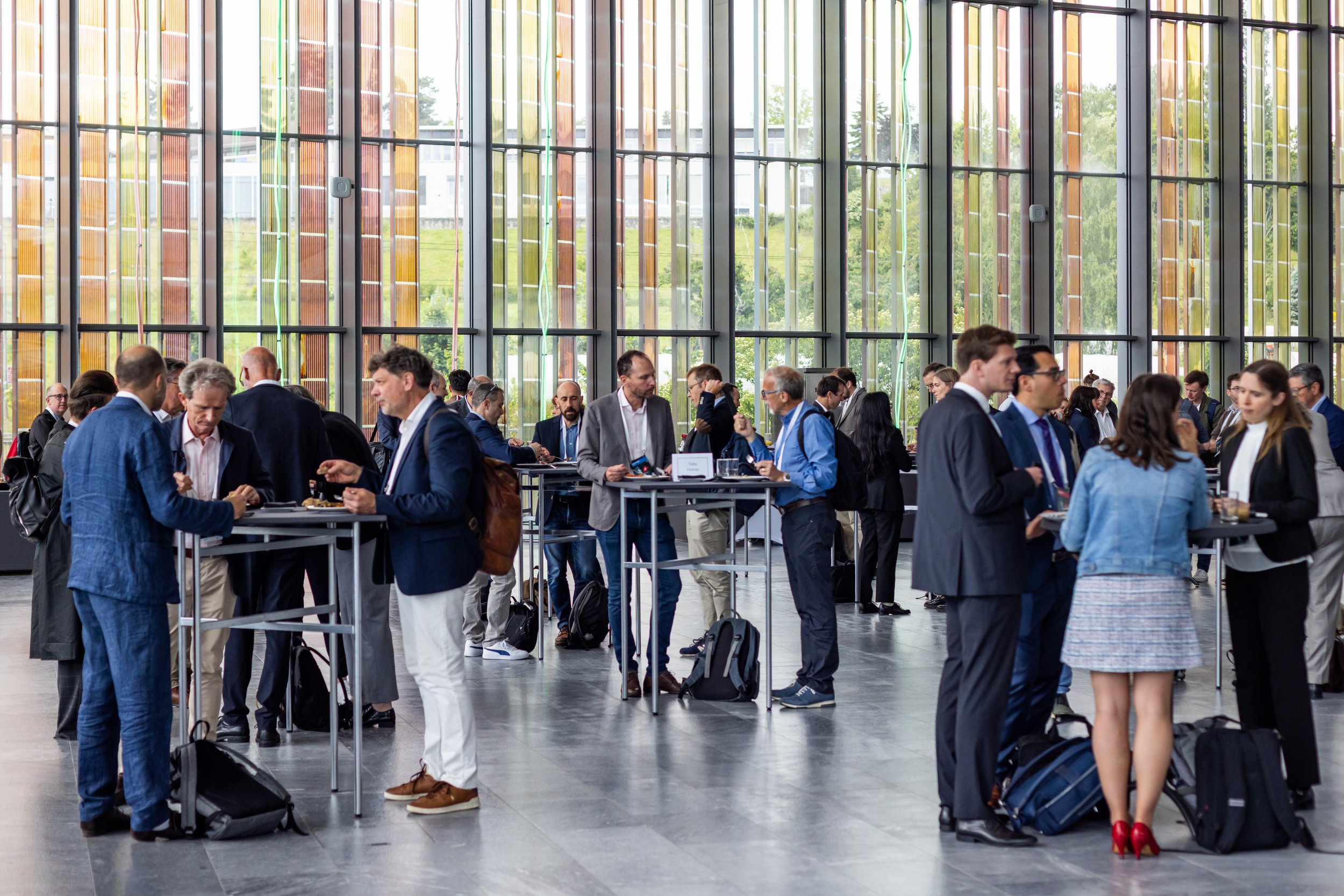
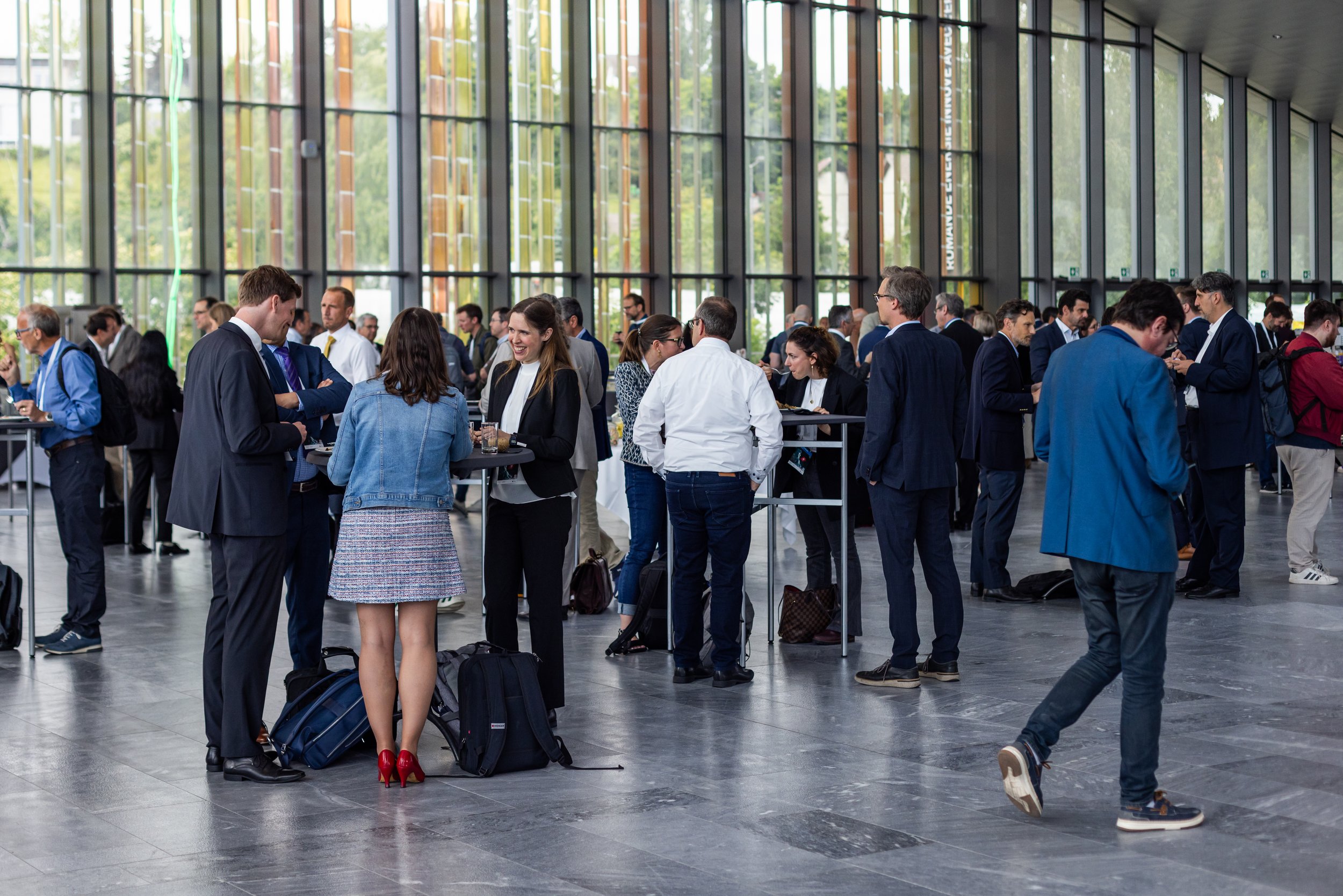
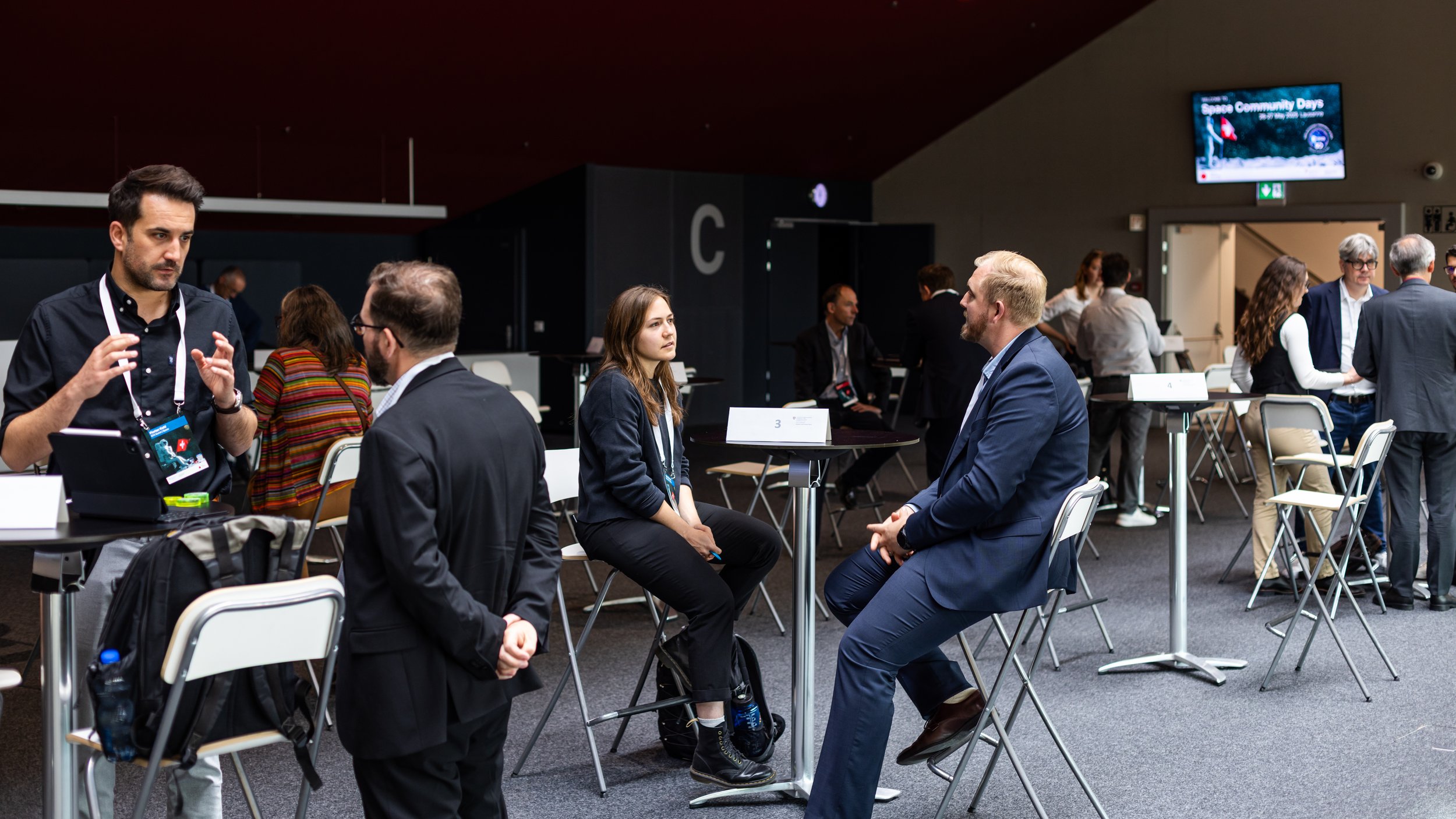
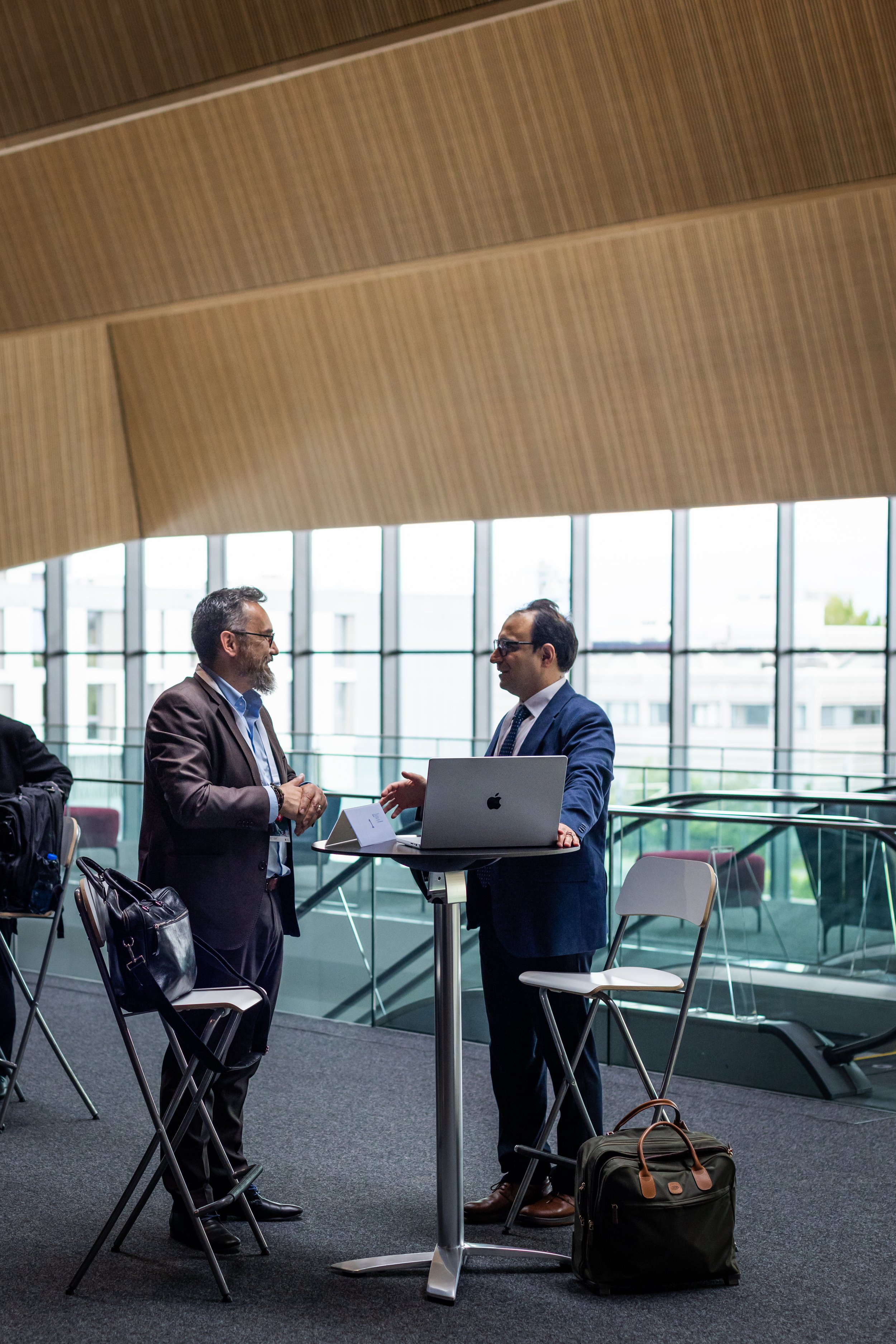
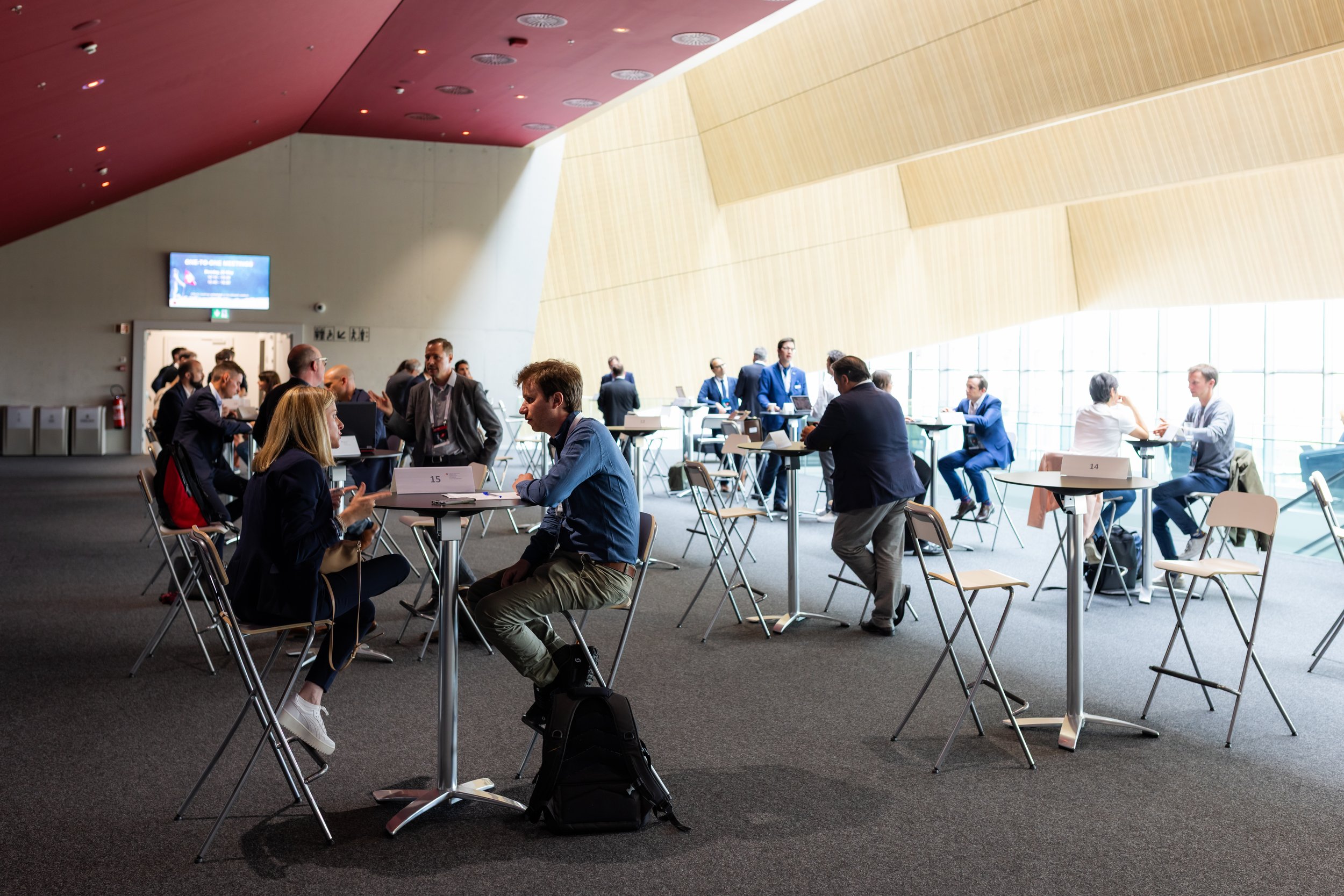
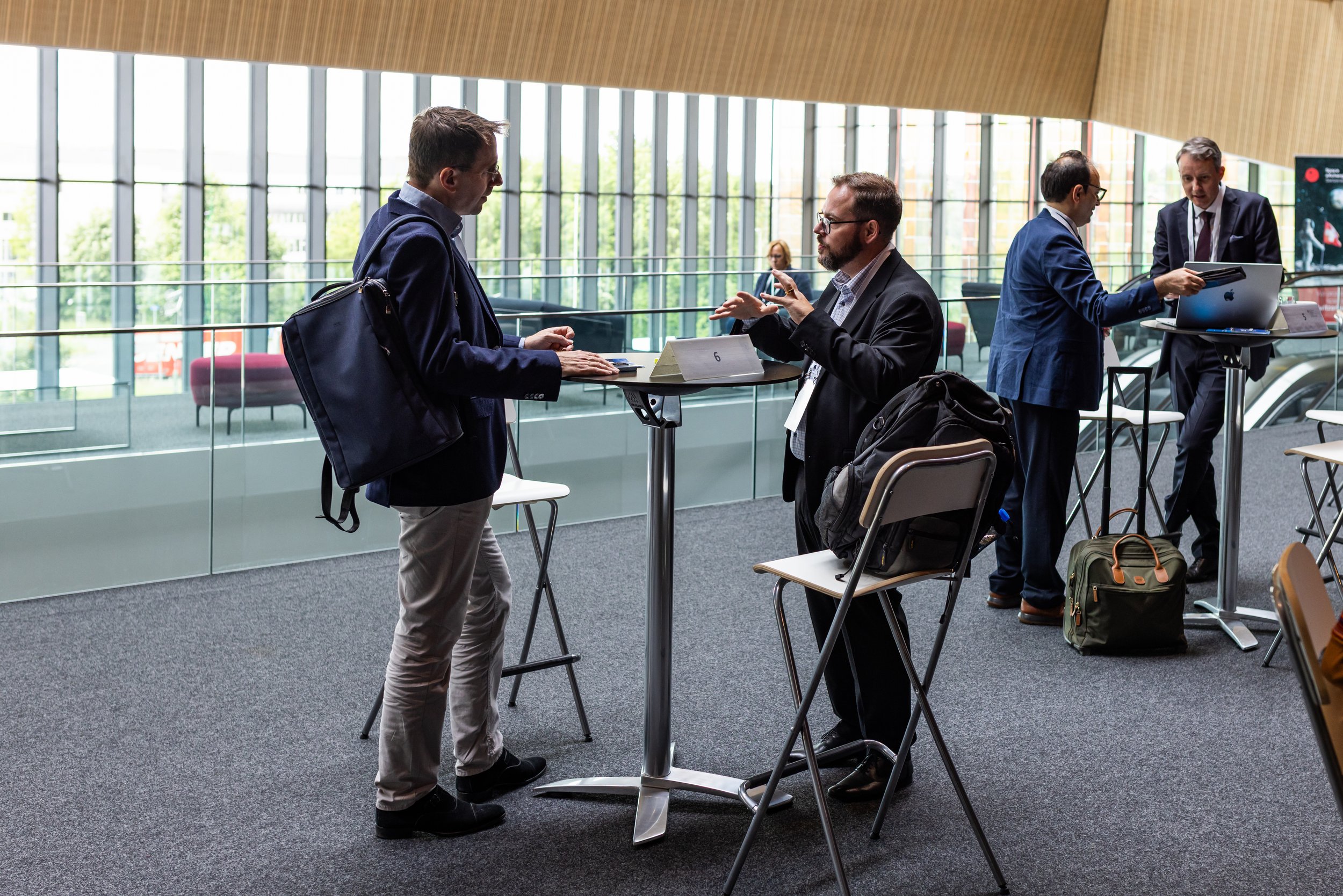
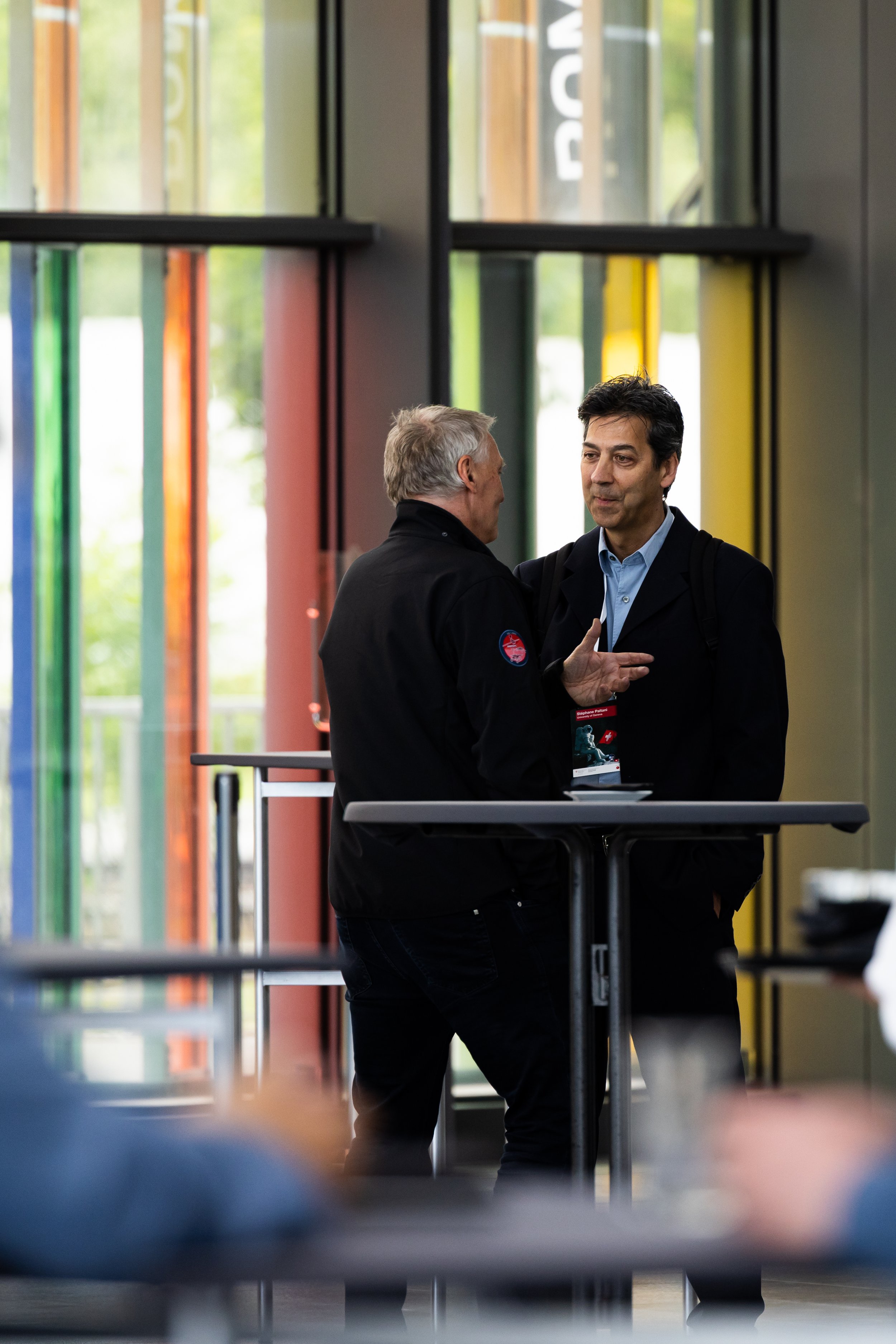
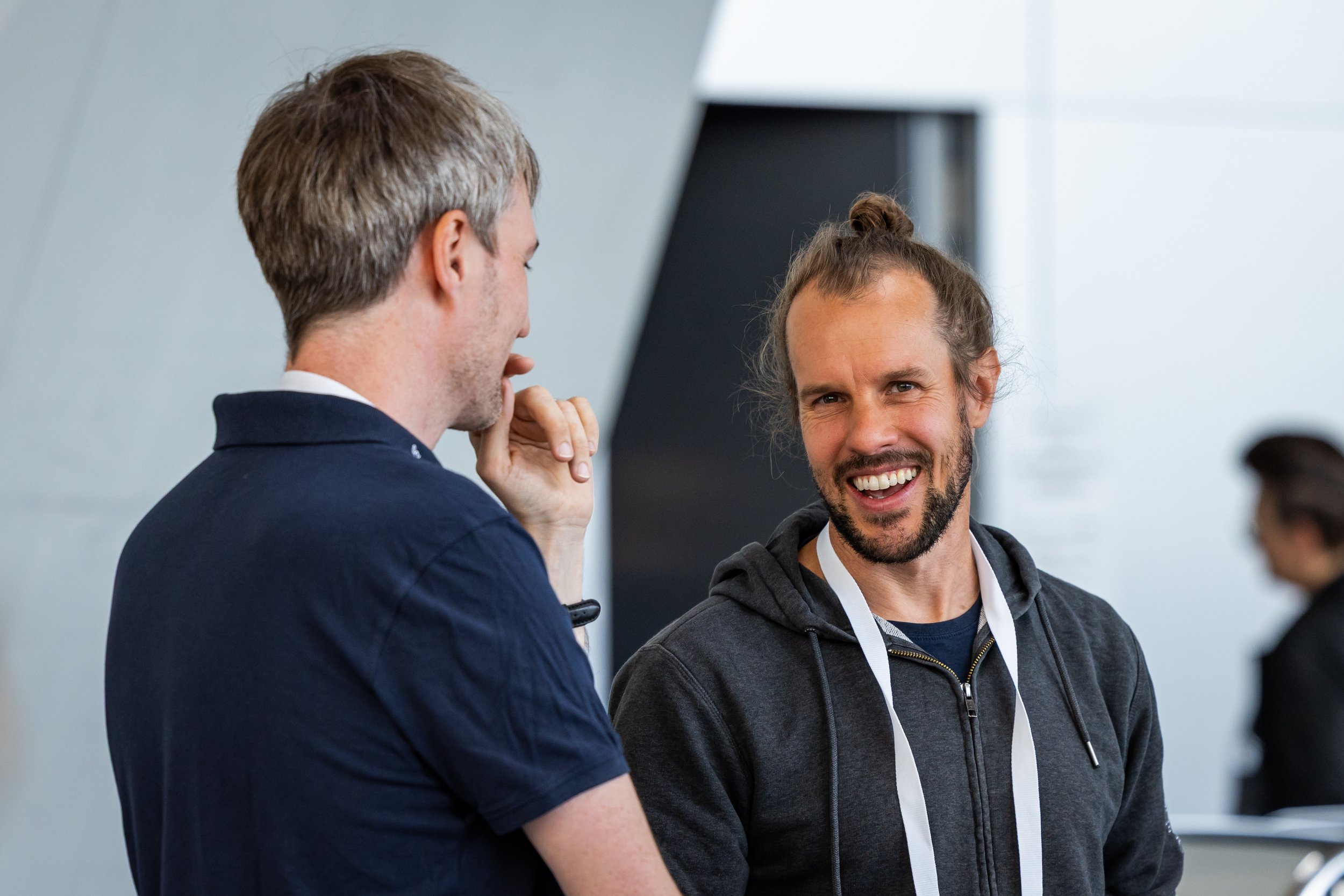
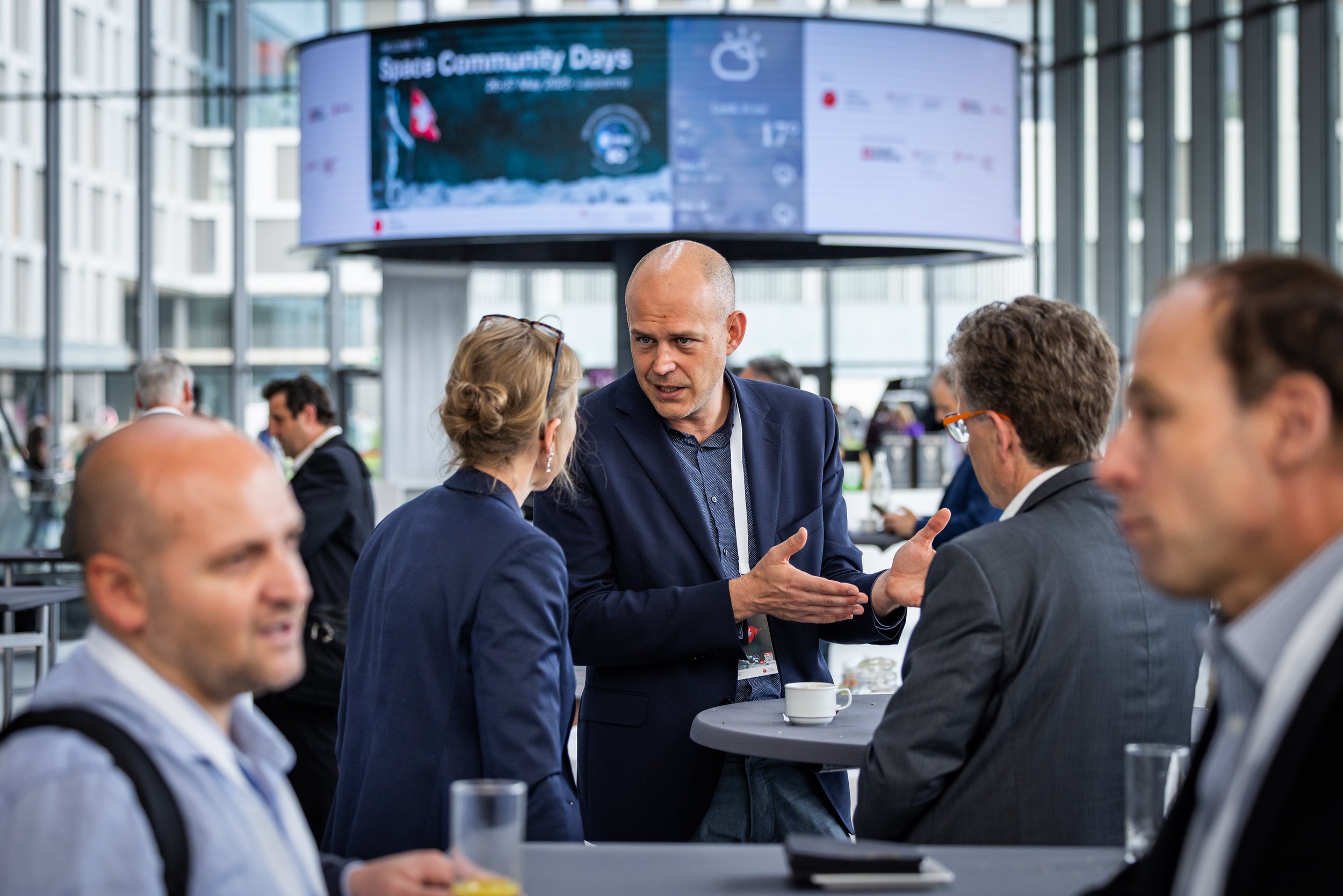
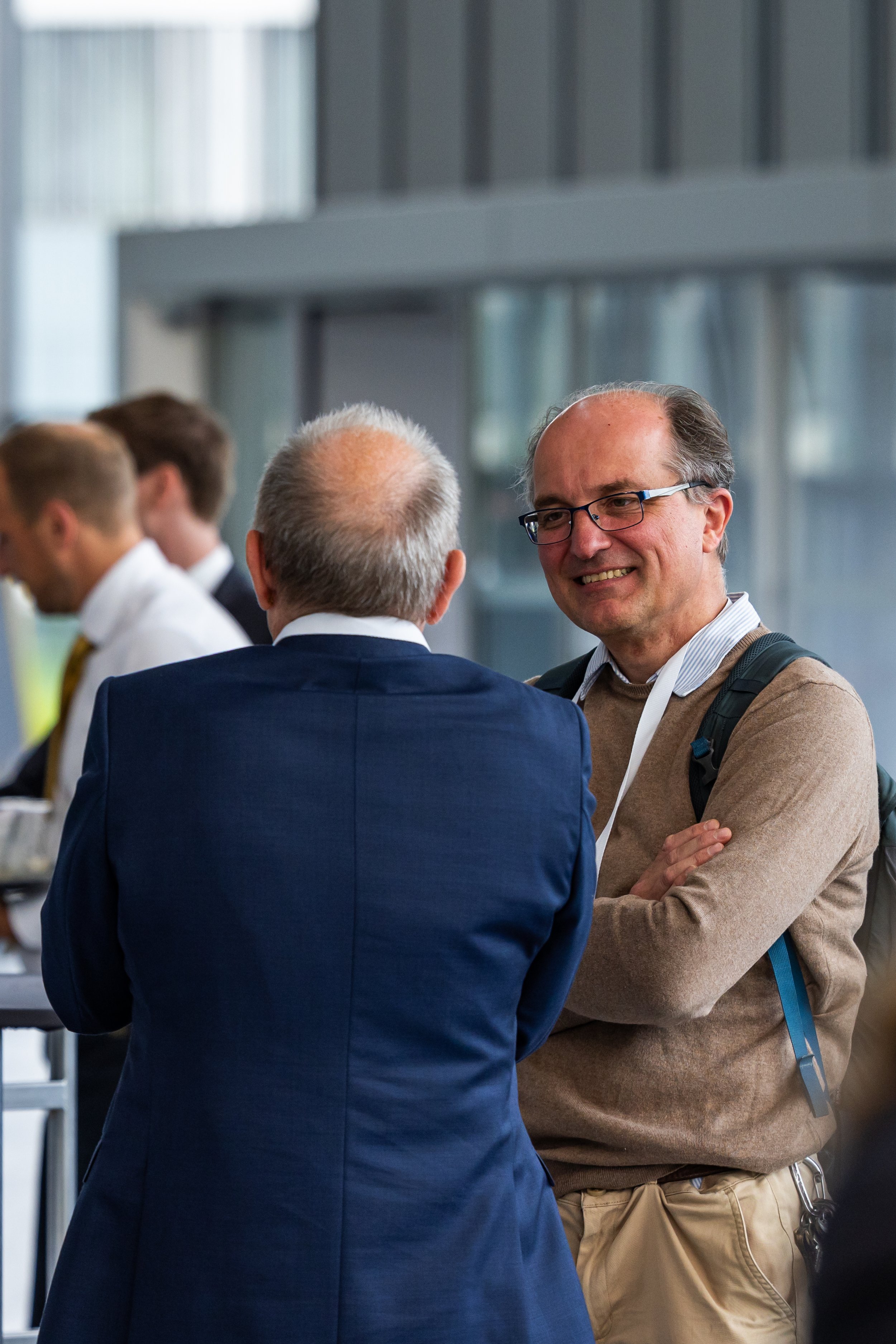
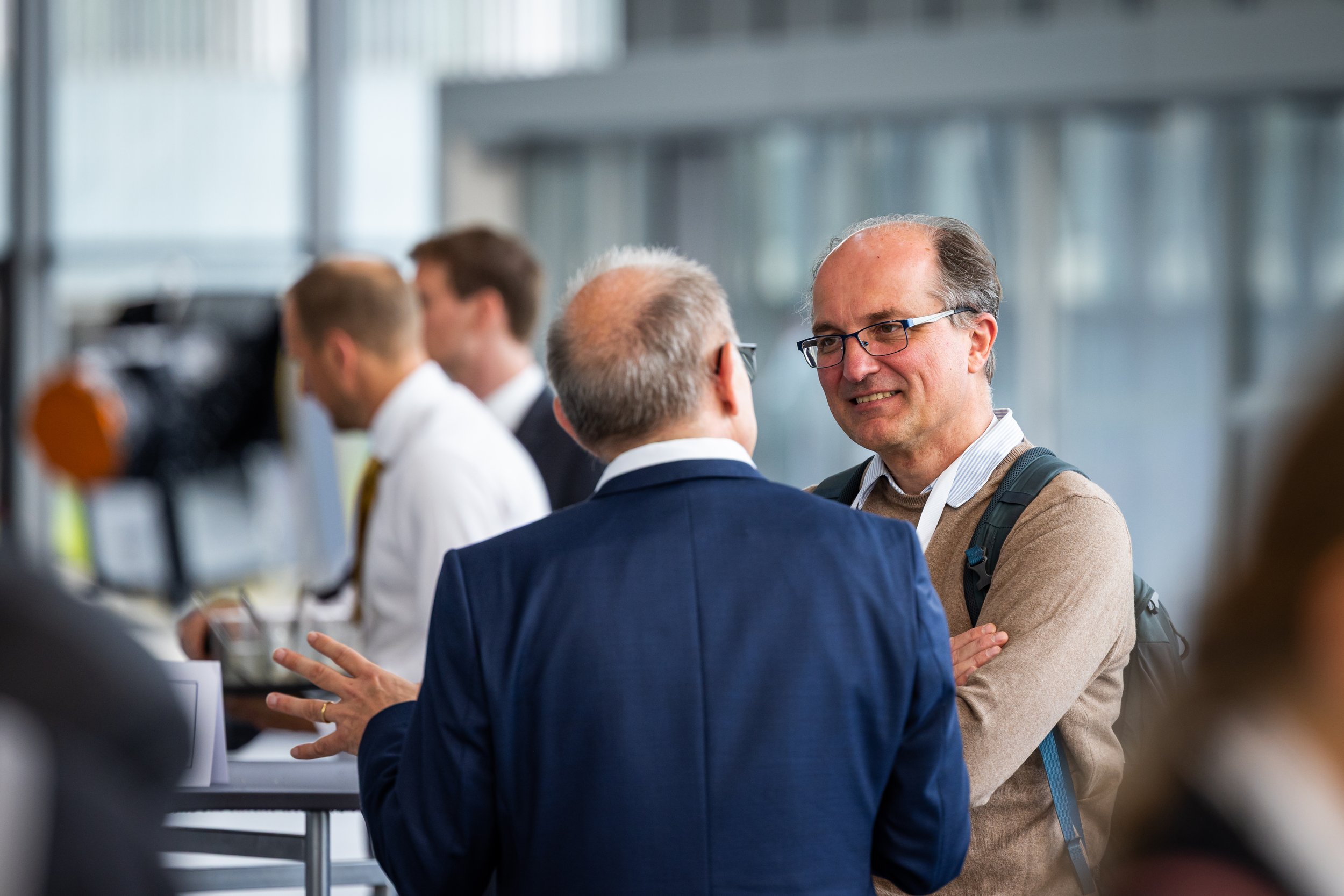
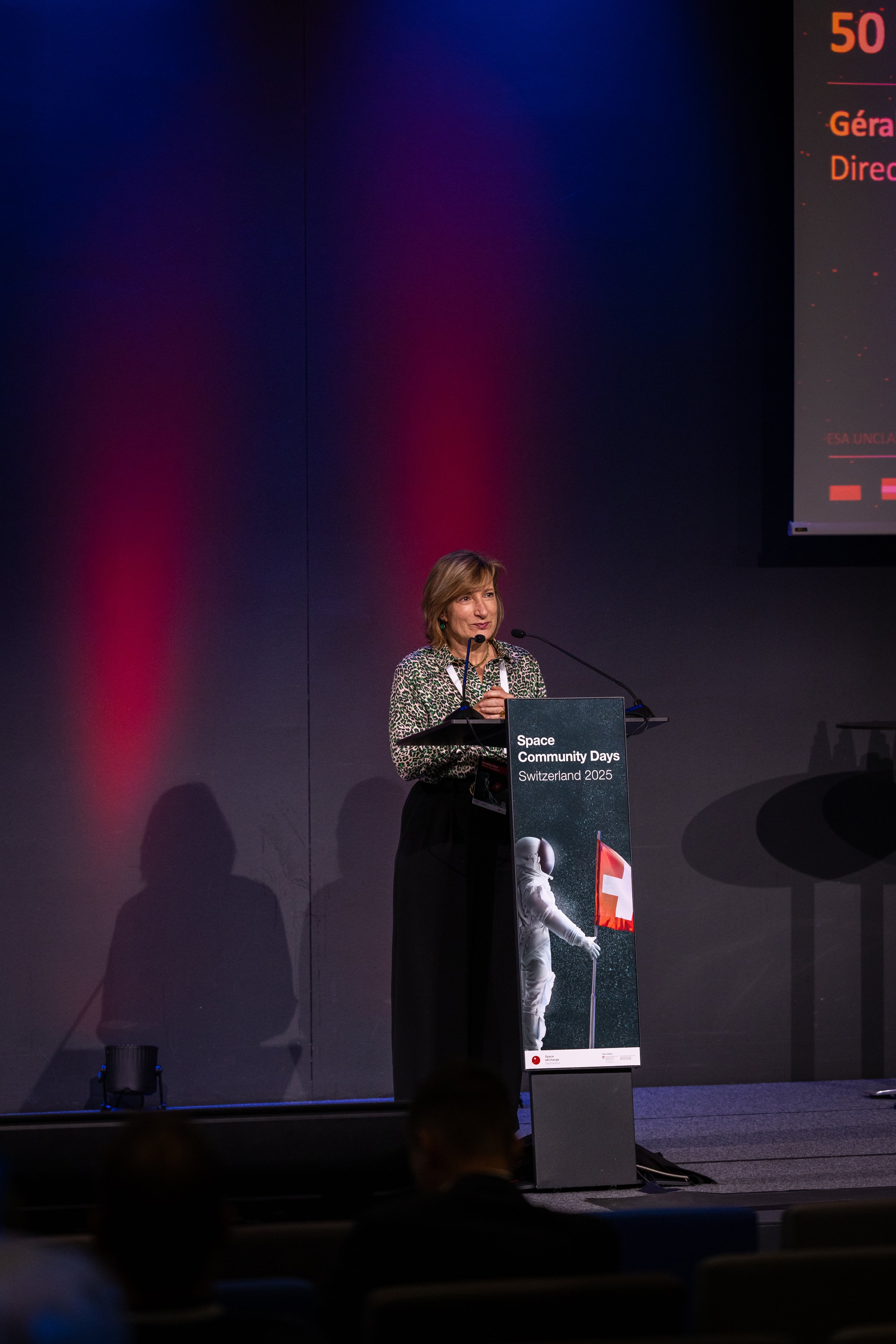
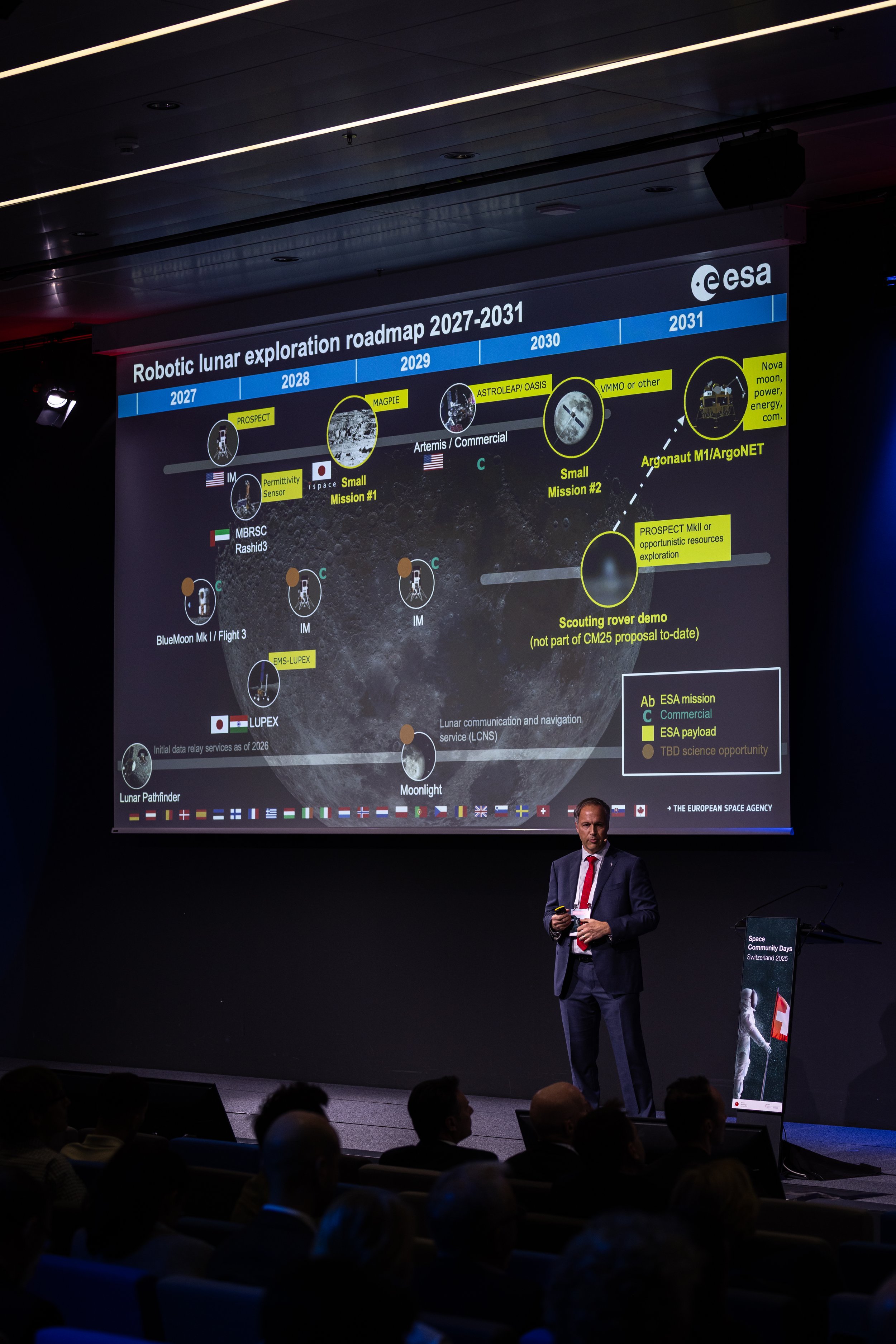
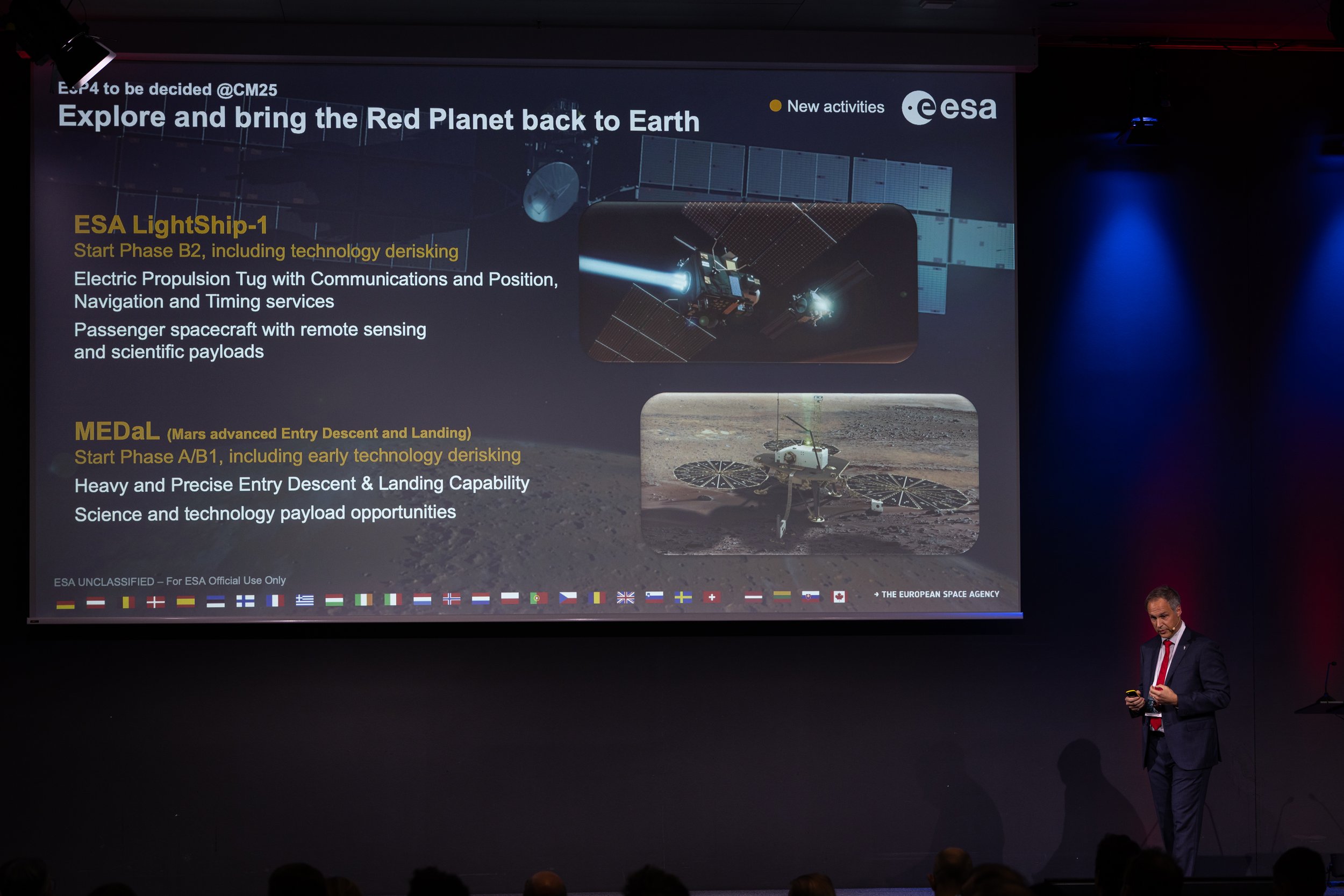
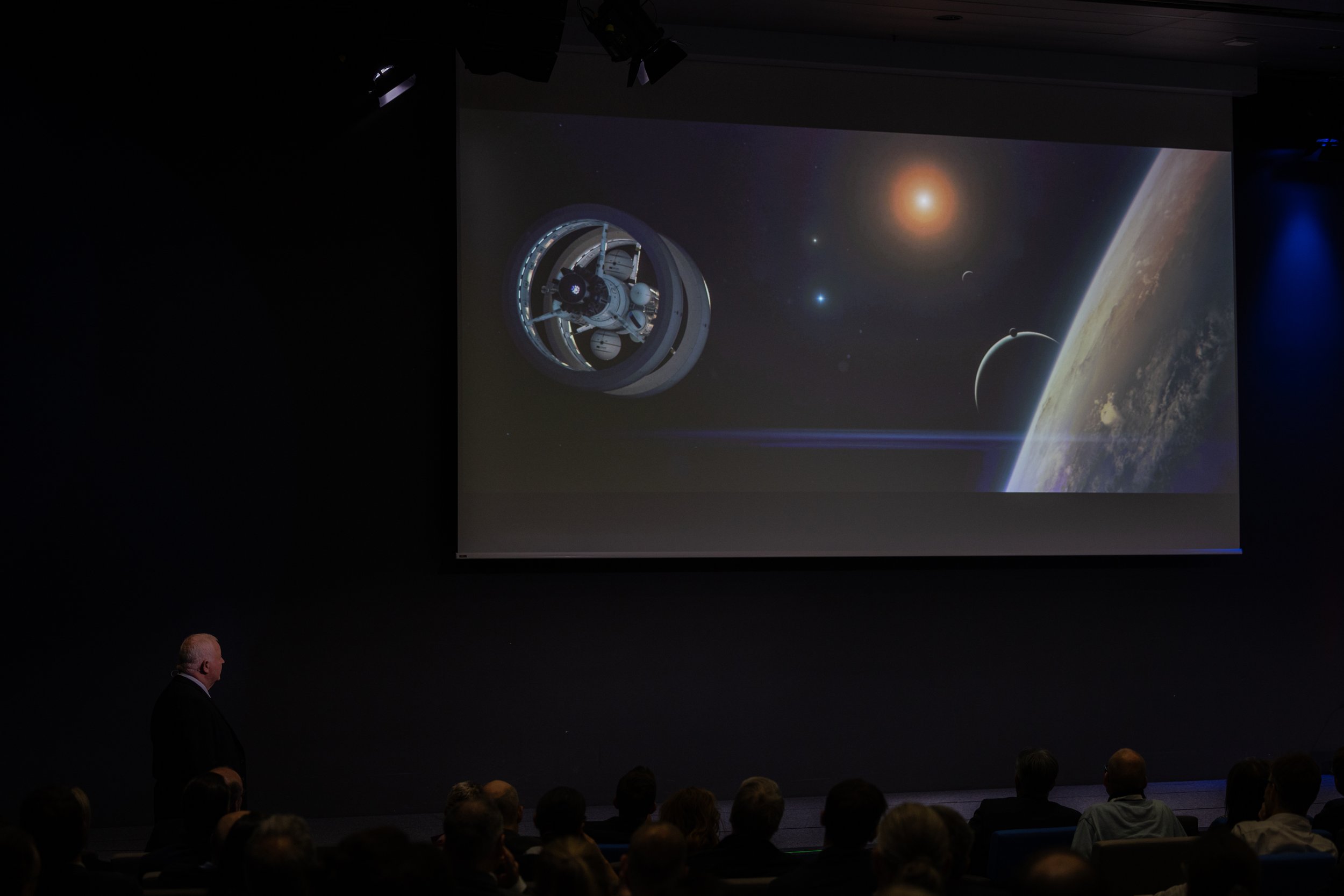
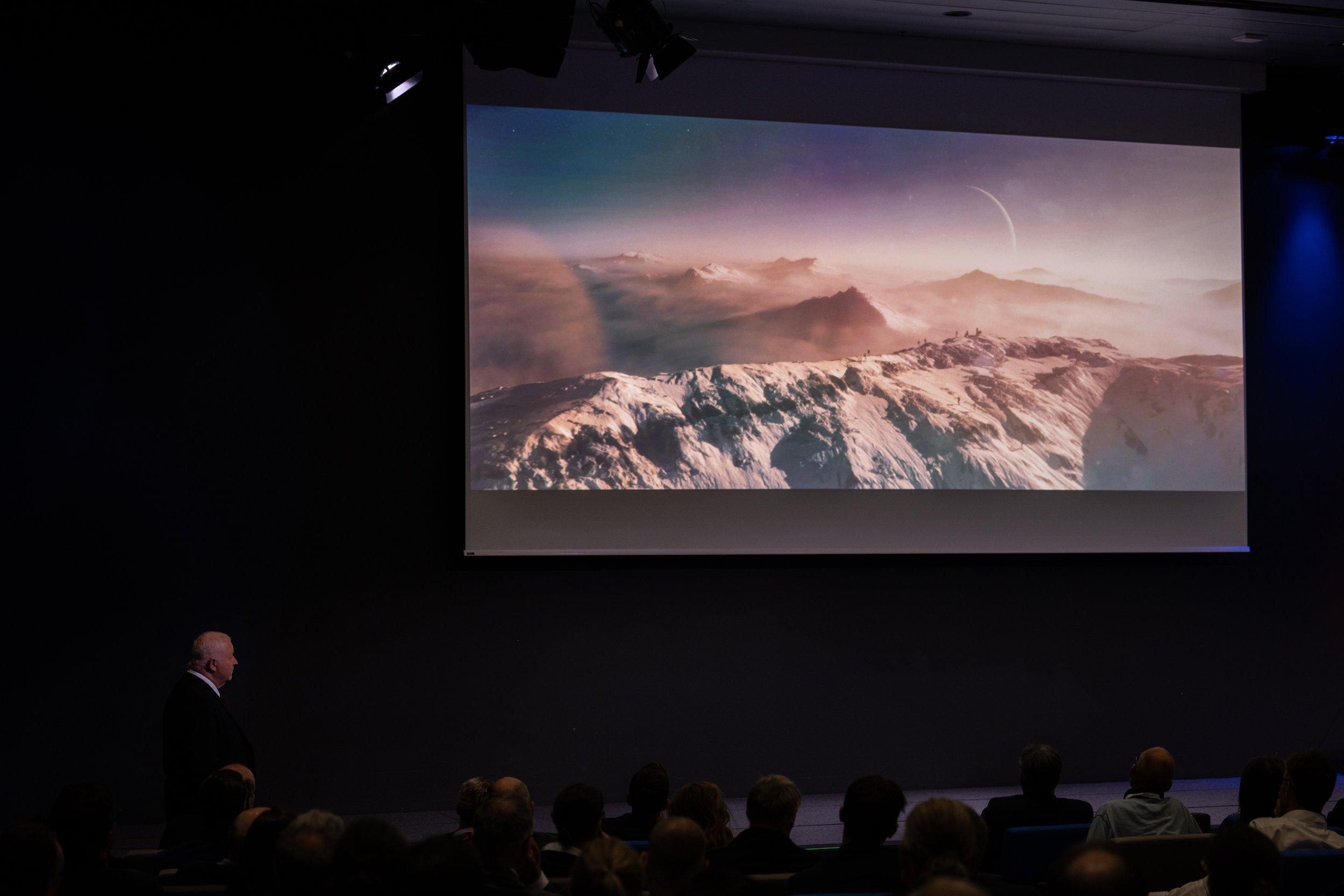
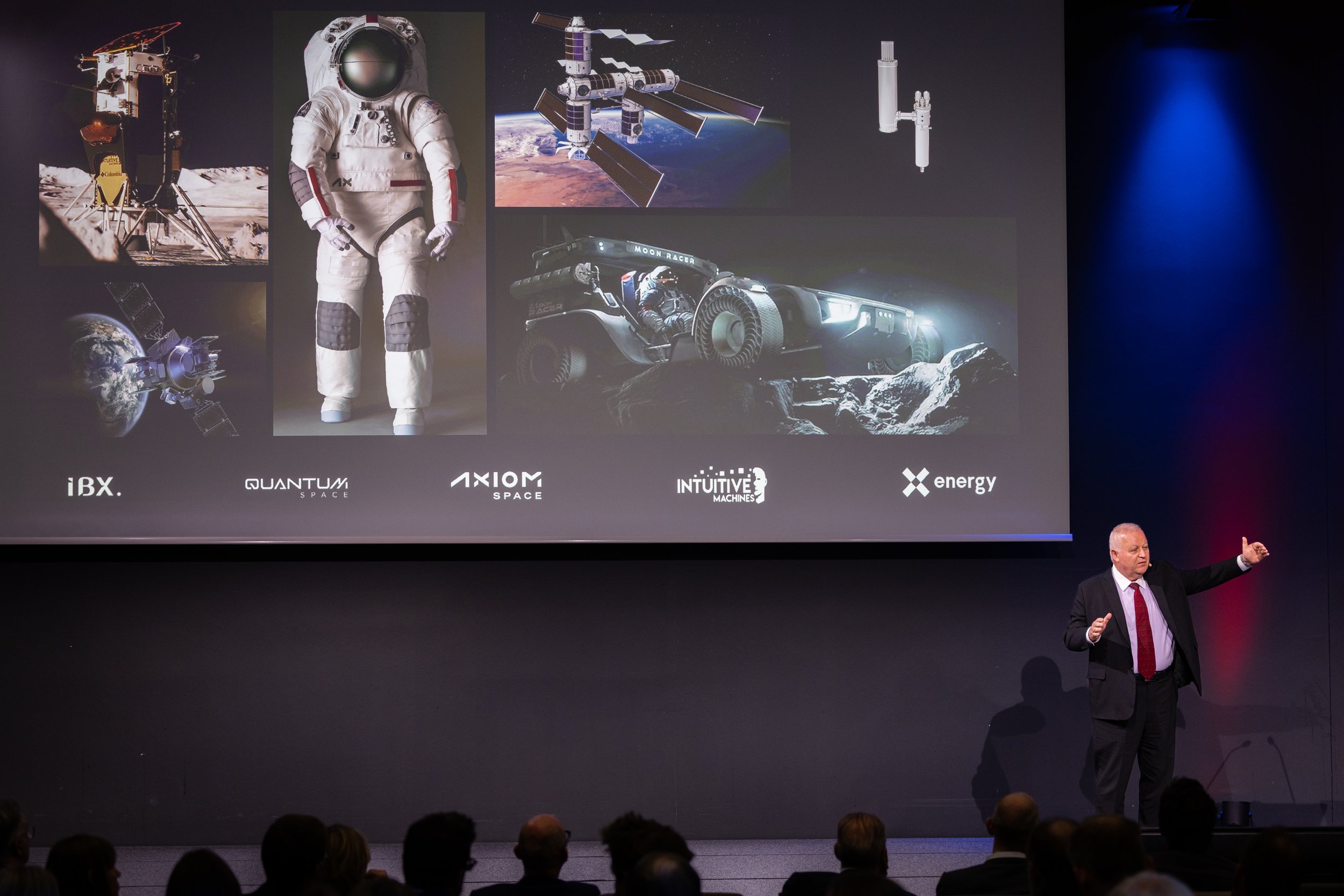
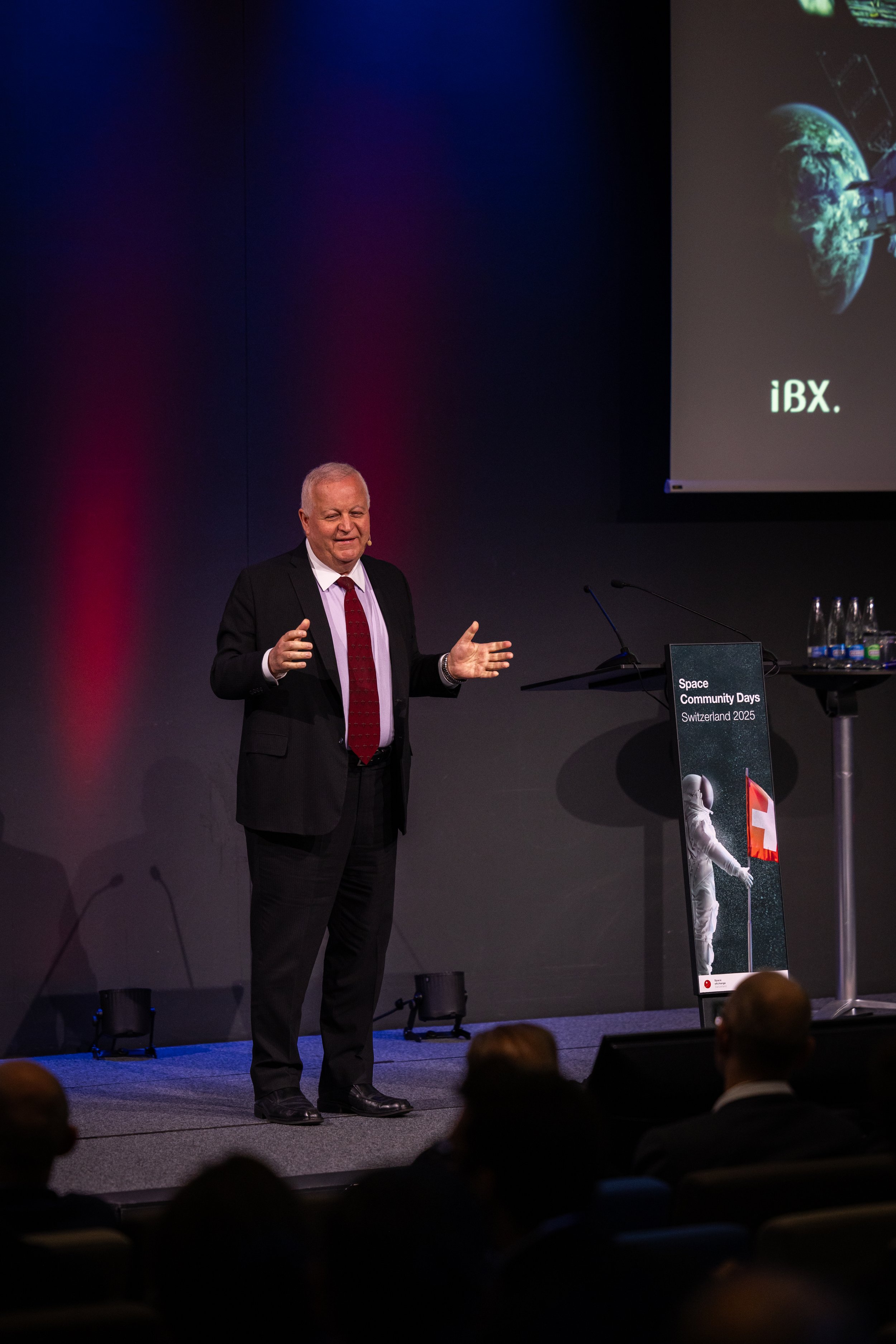
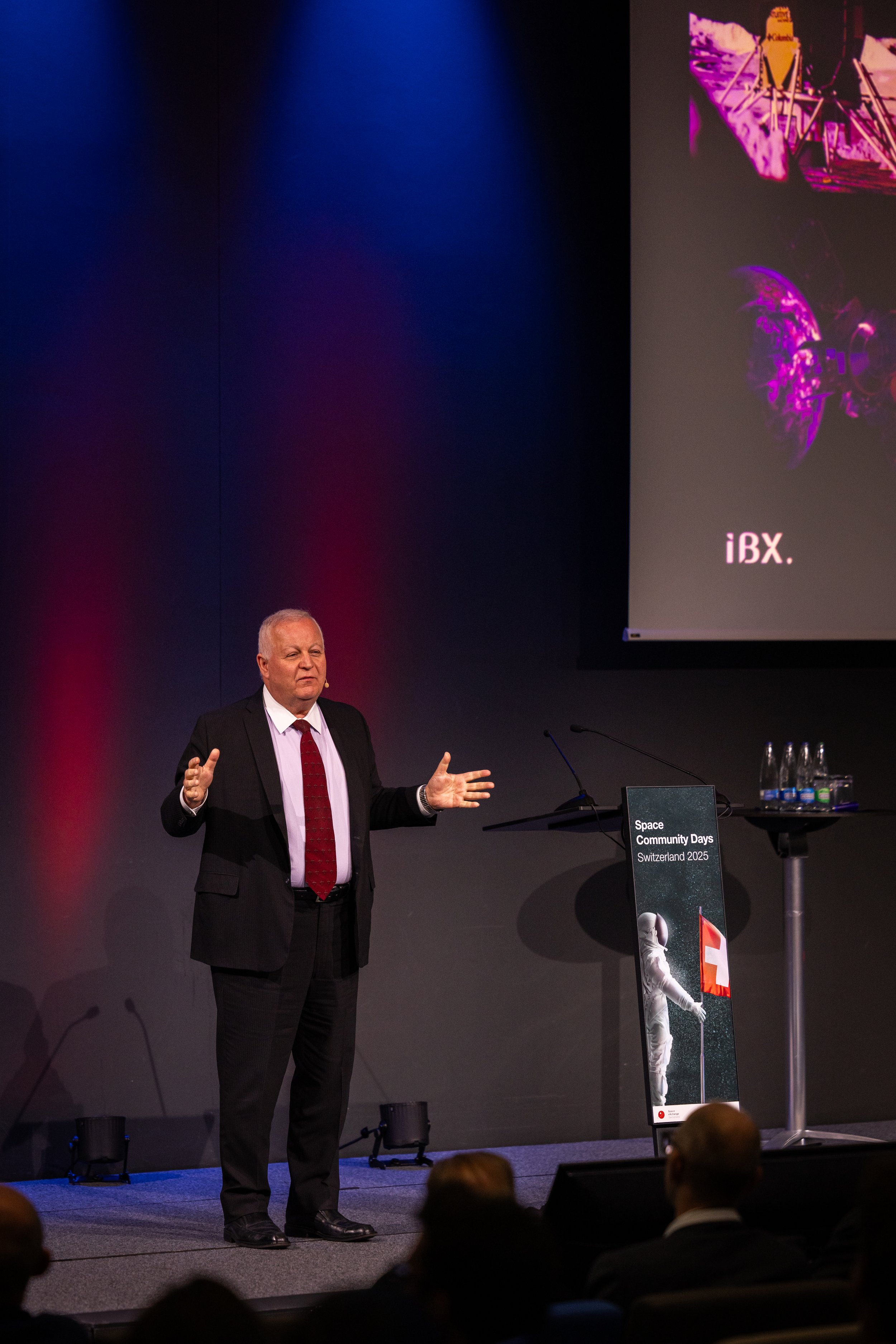
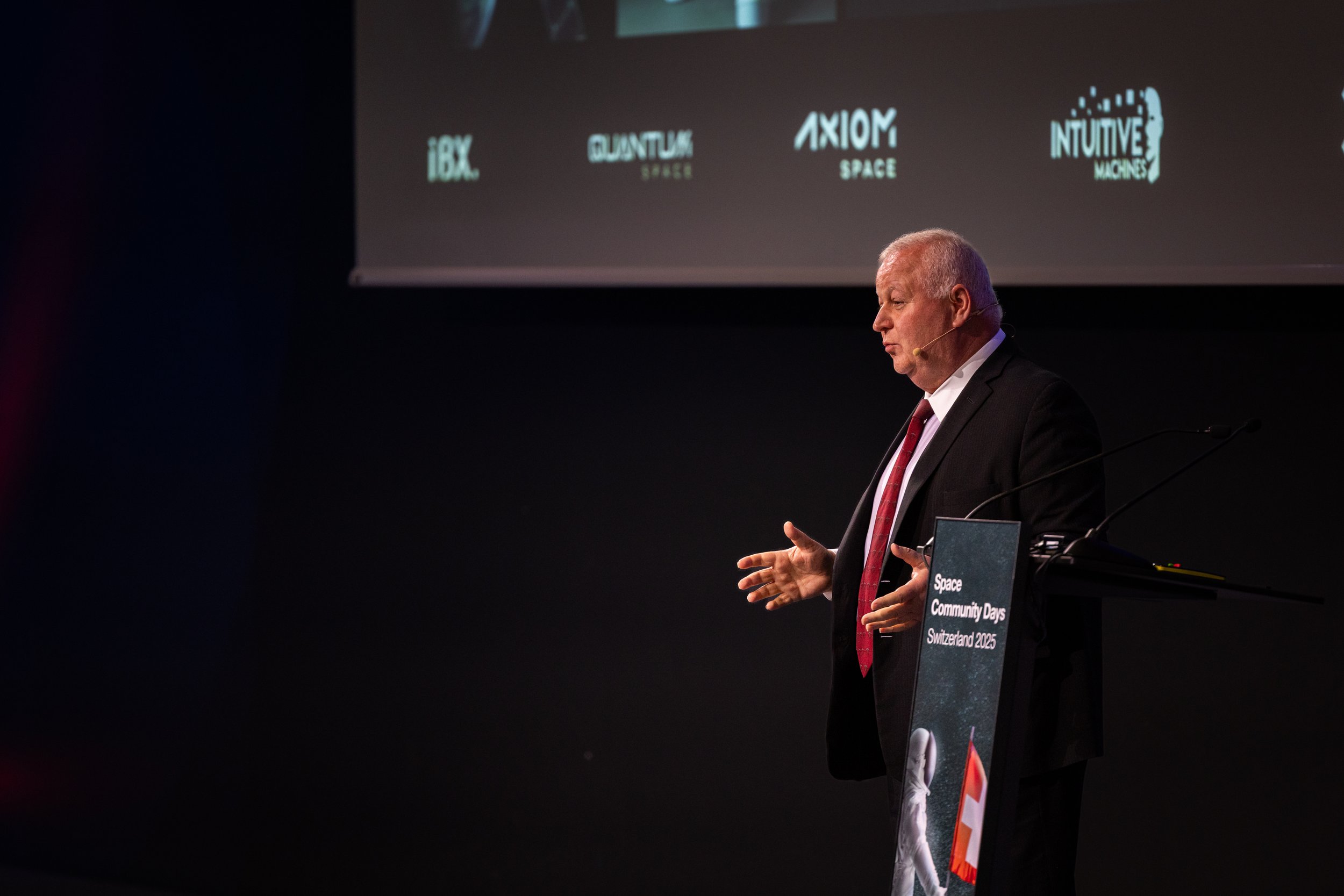
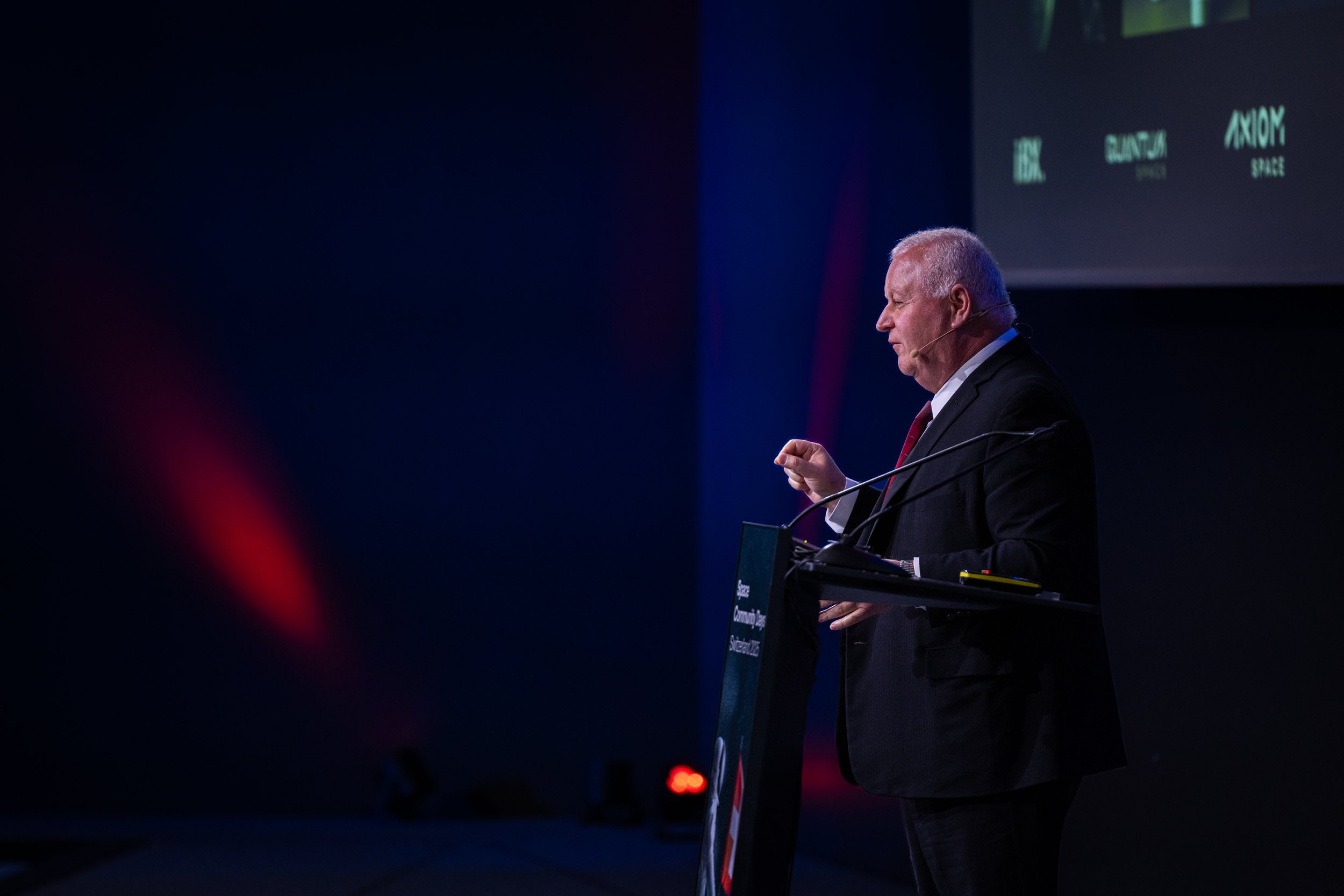
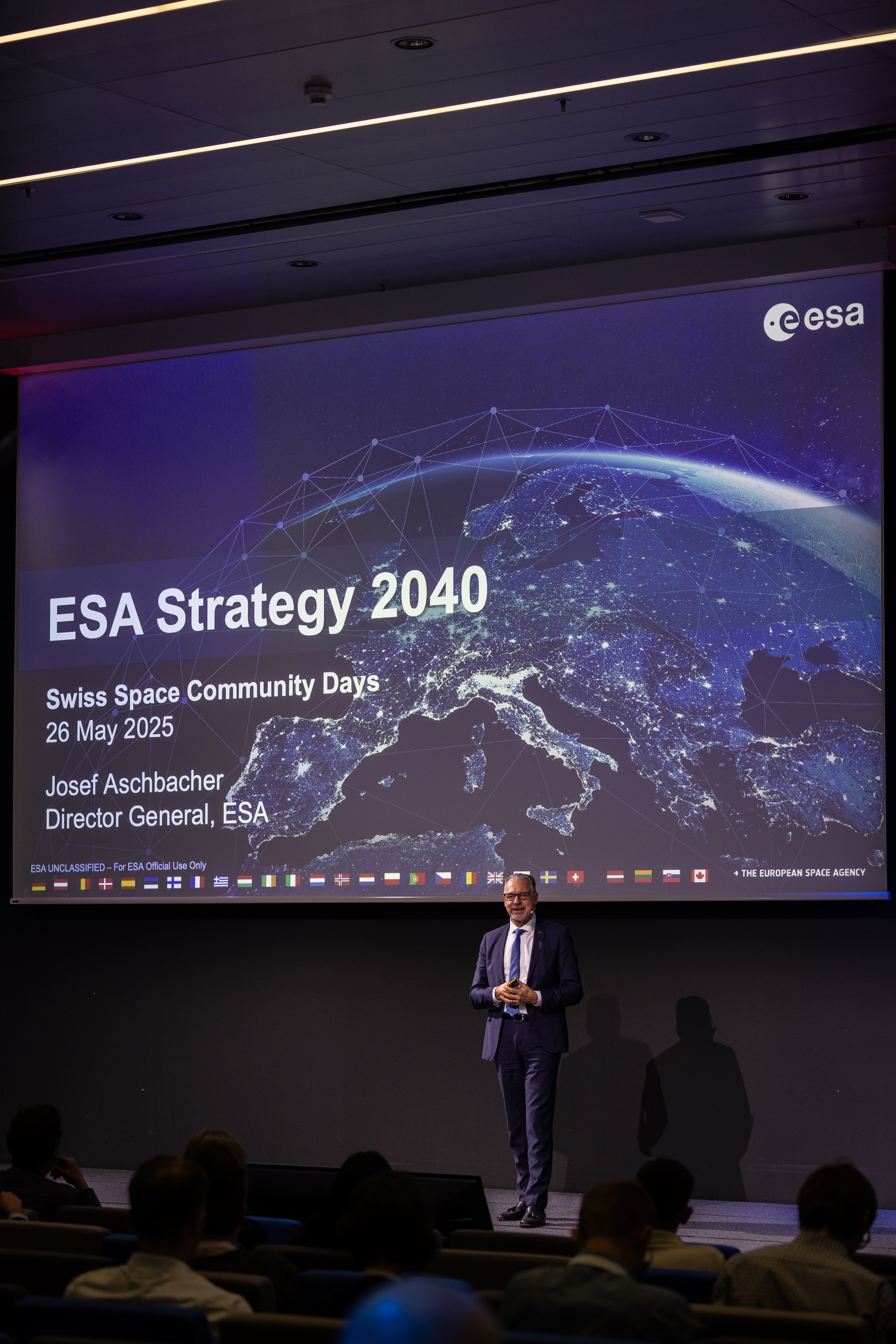
ESA 50 years celebration (26 May 2025)
On May 26th, over 1’000 participants came together in Lausanne, at the SwissTech Convention Center, to celebrate ESA’s 50 years anniversary. We were pleased to offer a glimpse of the distinguished speakers who joined us for this unique event. Representing a broad spectrum of sectors, they brought diverse insights and perspectives that enriched the celebration and sparked dialogue.
Adding to the magic of the evening, the Swiss-led troupe THE BLACKOUTS delivered four spectacular performances, lighting up the celebration with energy and creativity. Even the participants had the chance to become part of the show at the end of the celebration.
See everything from the event on our recap page!
📸: Phil SuarezThis event is initiated and funded by the State Secretariat for Education, Research and Innovation and supported by Space Exchange Switzerland.
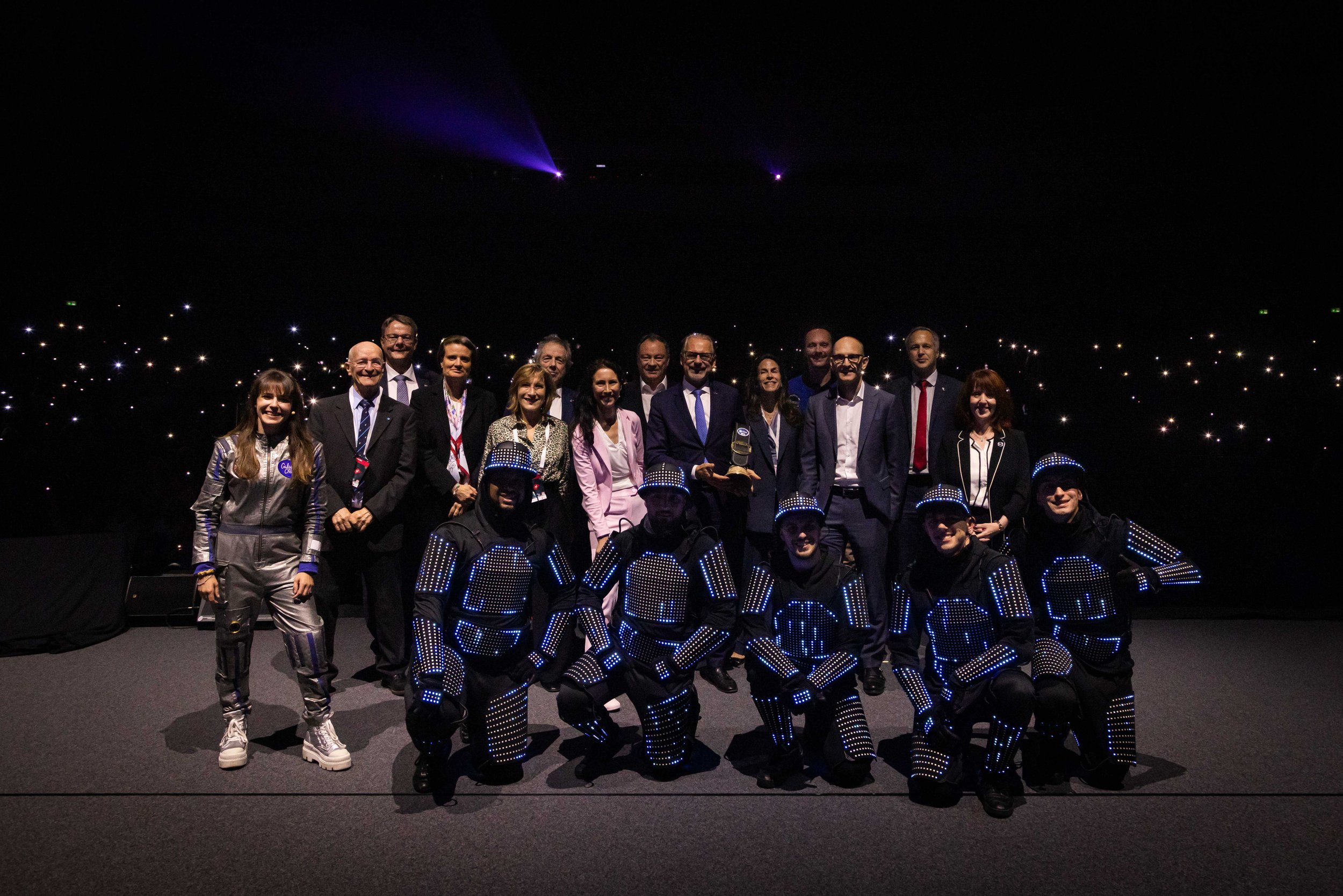
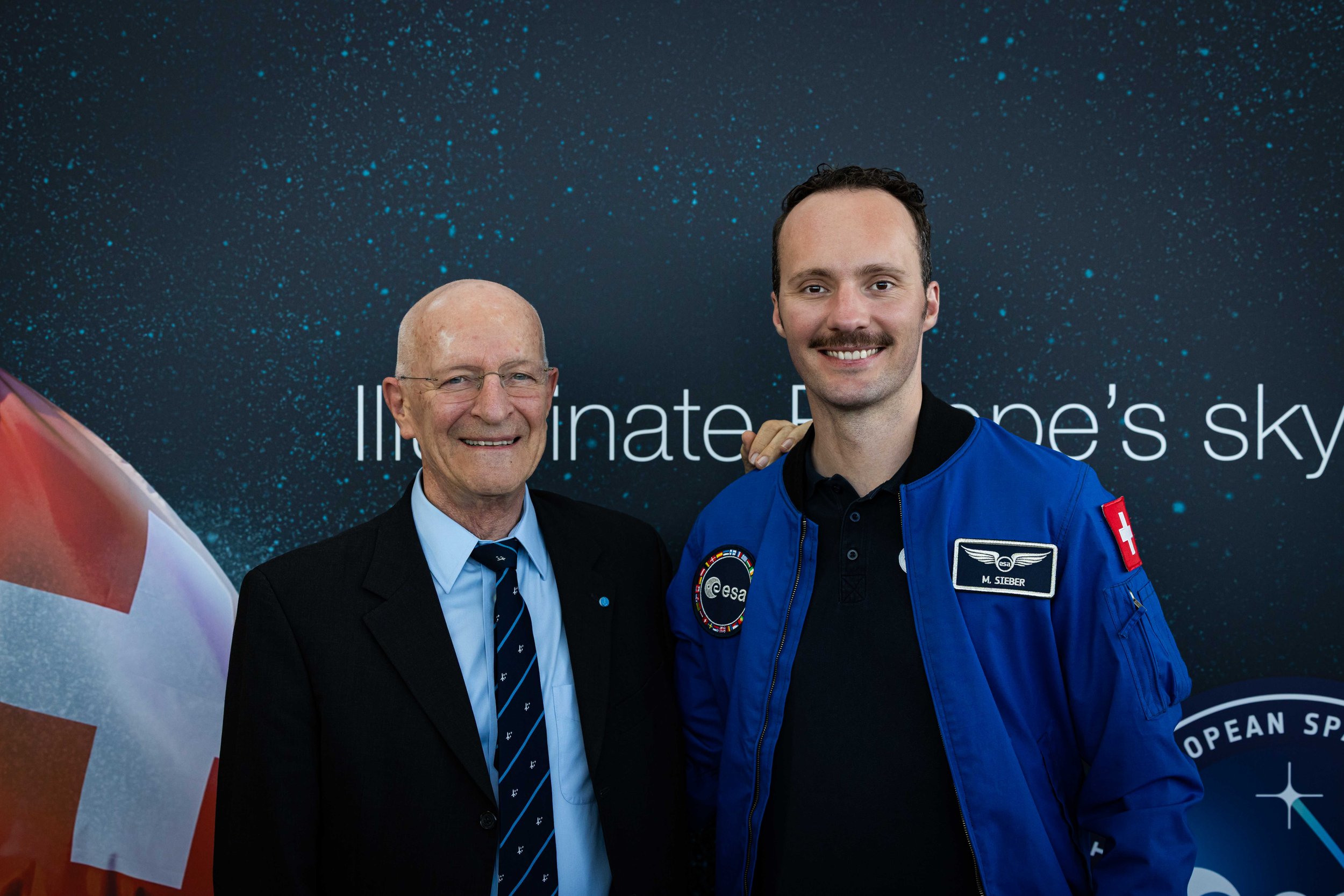
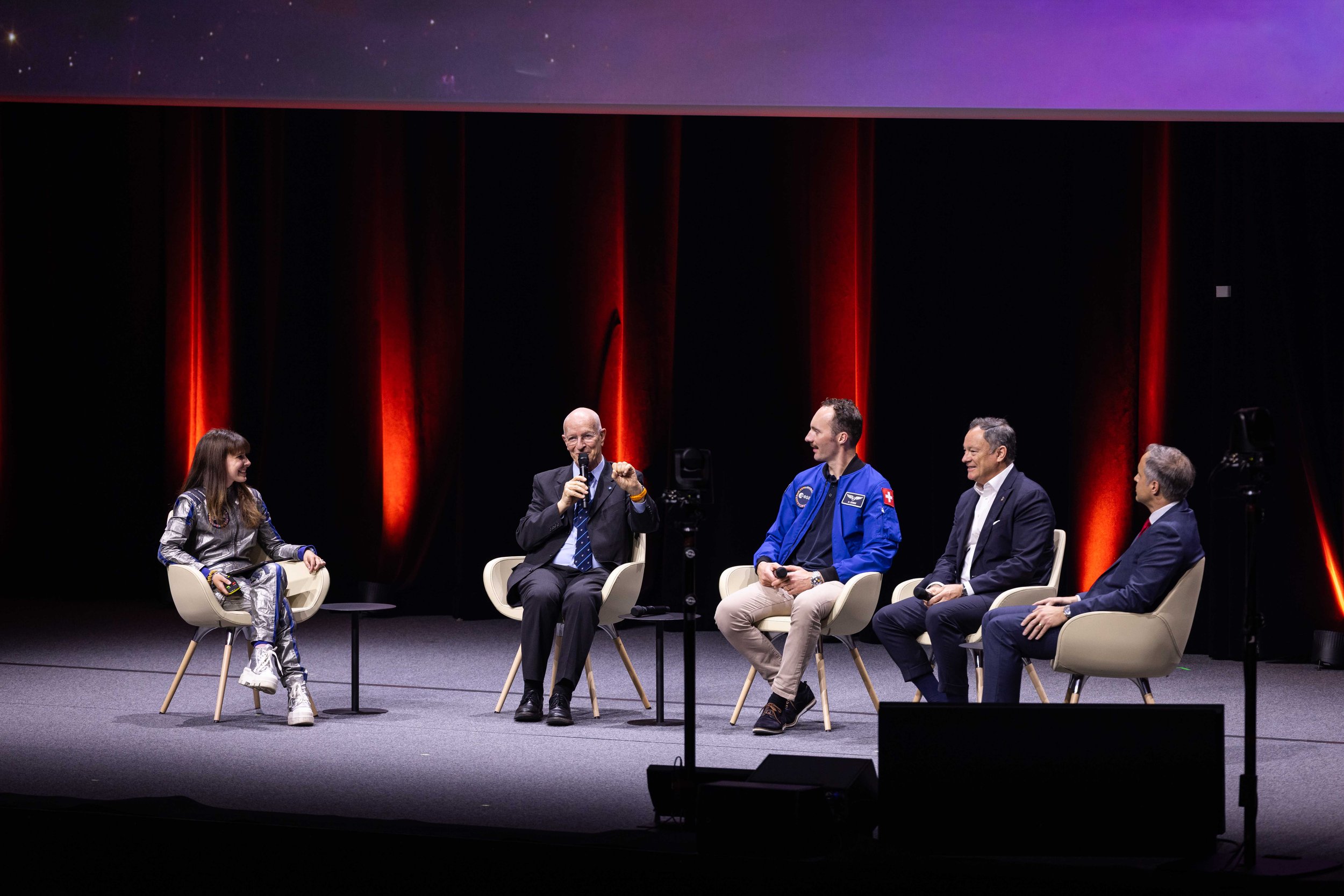
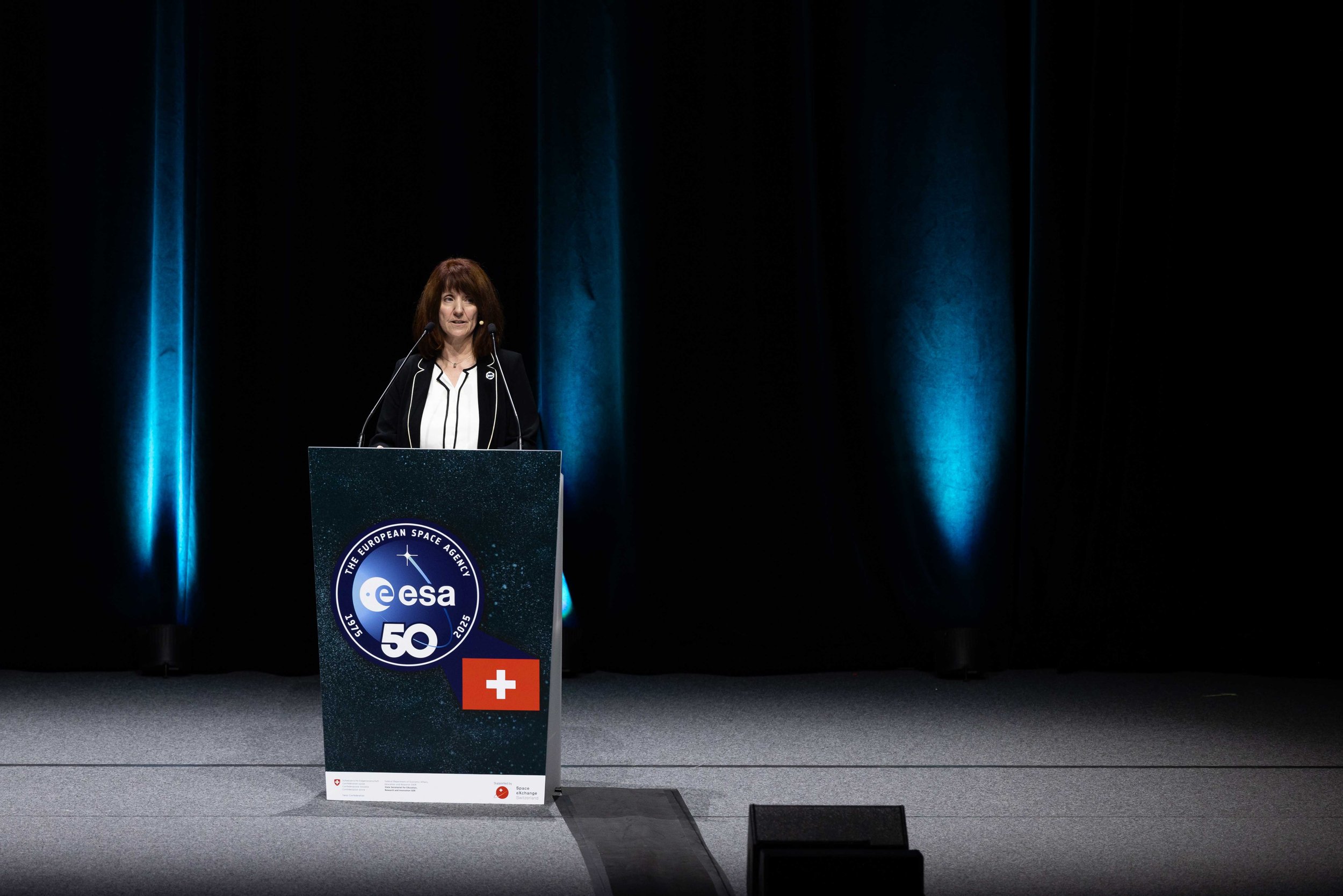
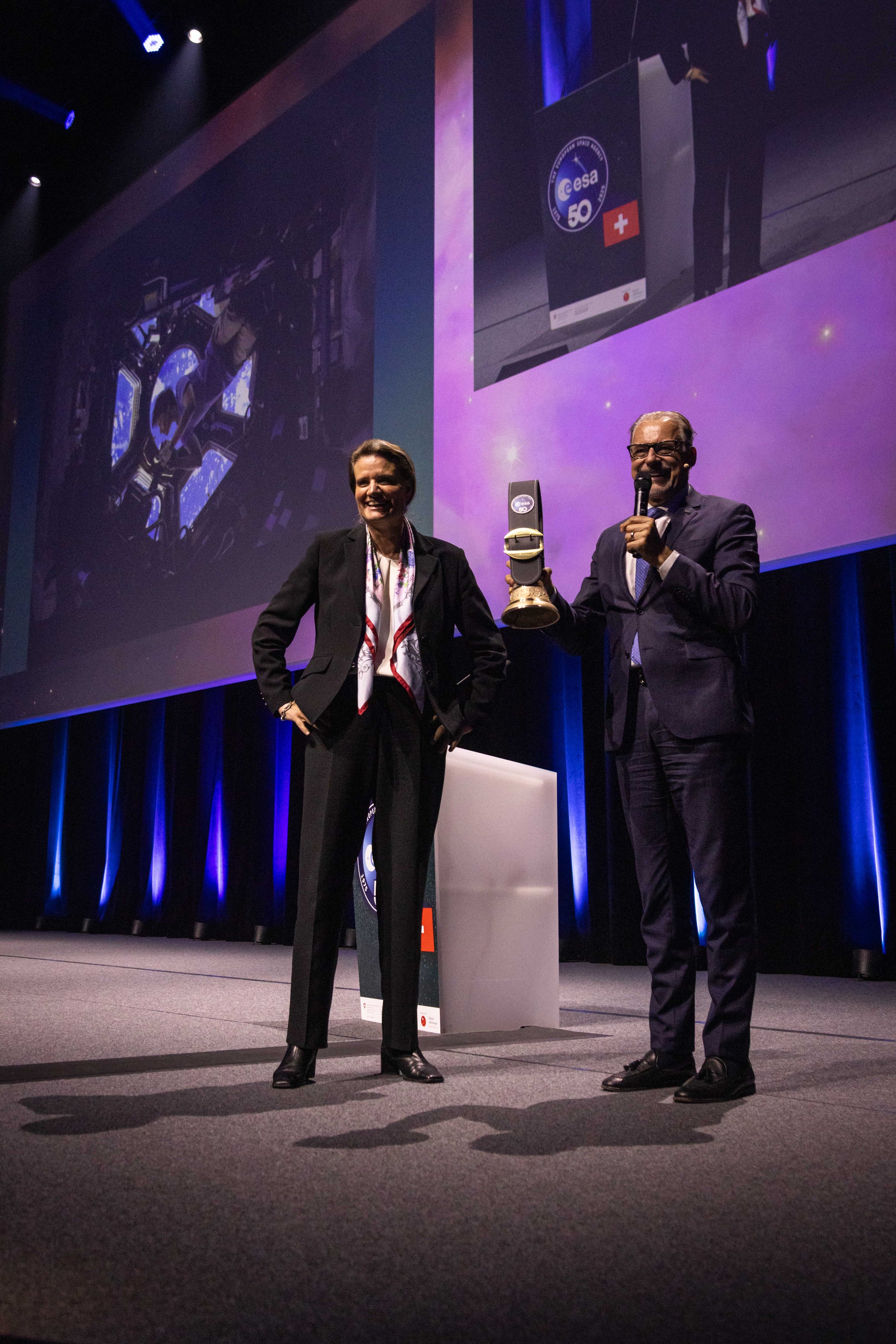
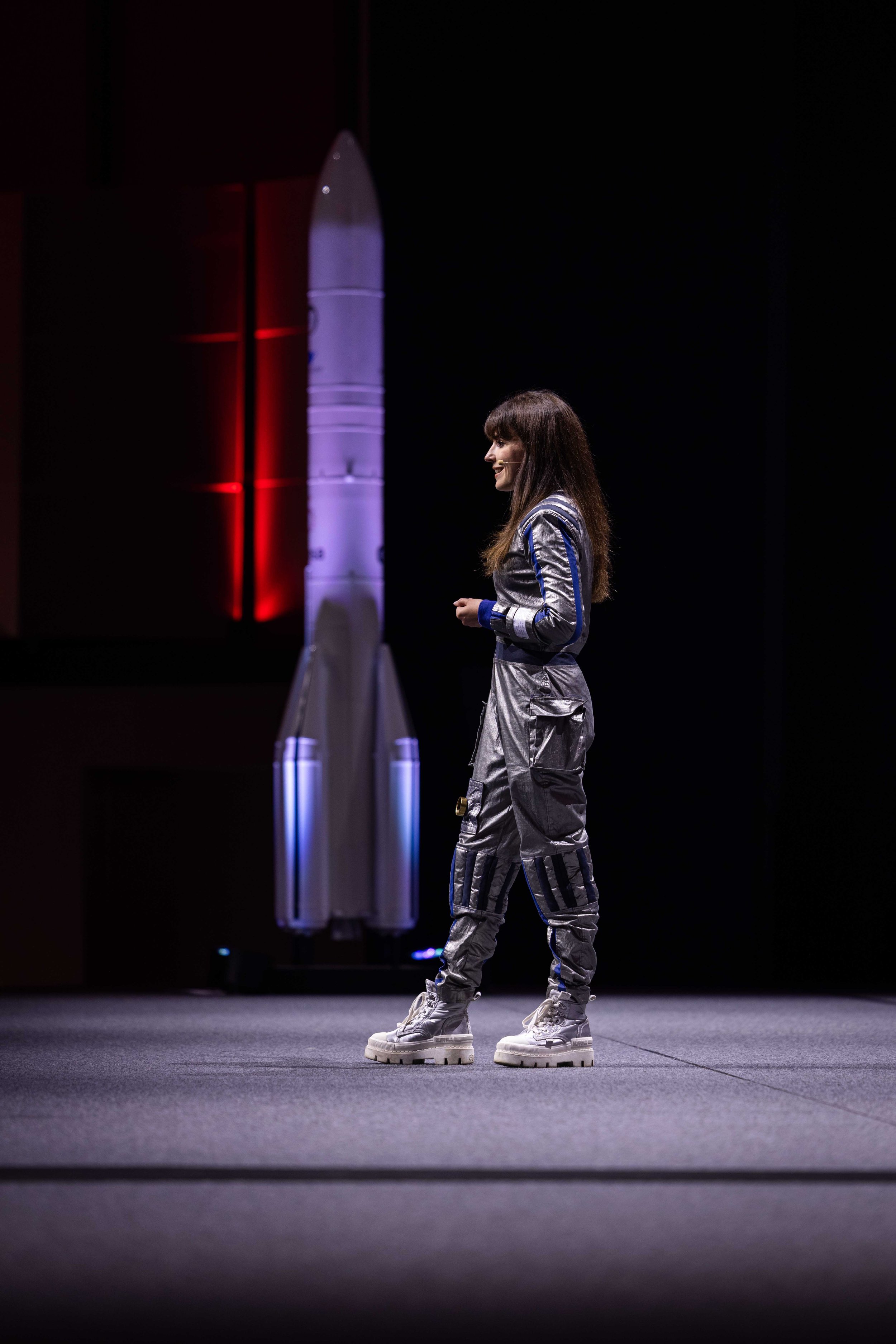
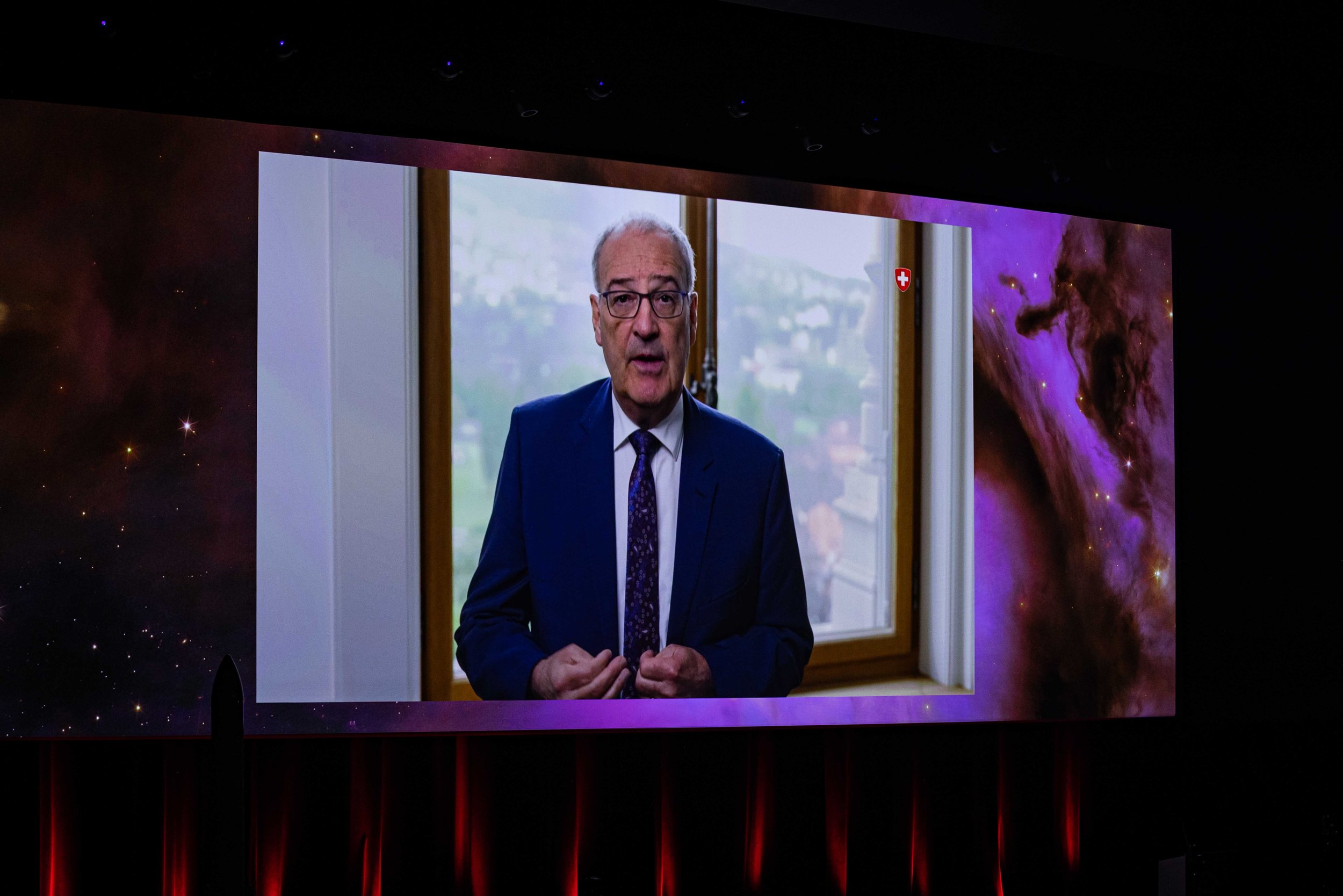
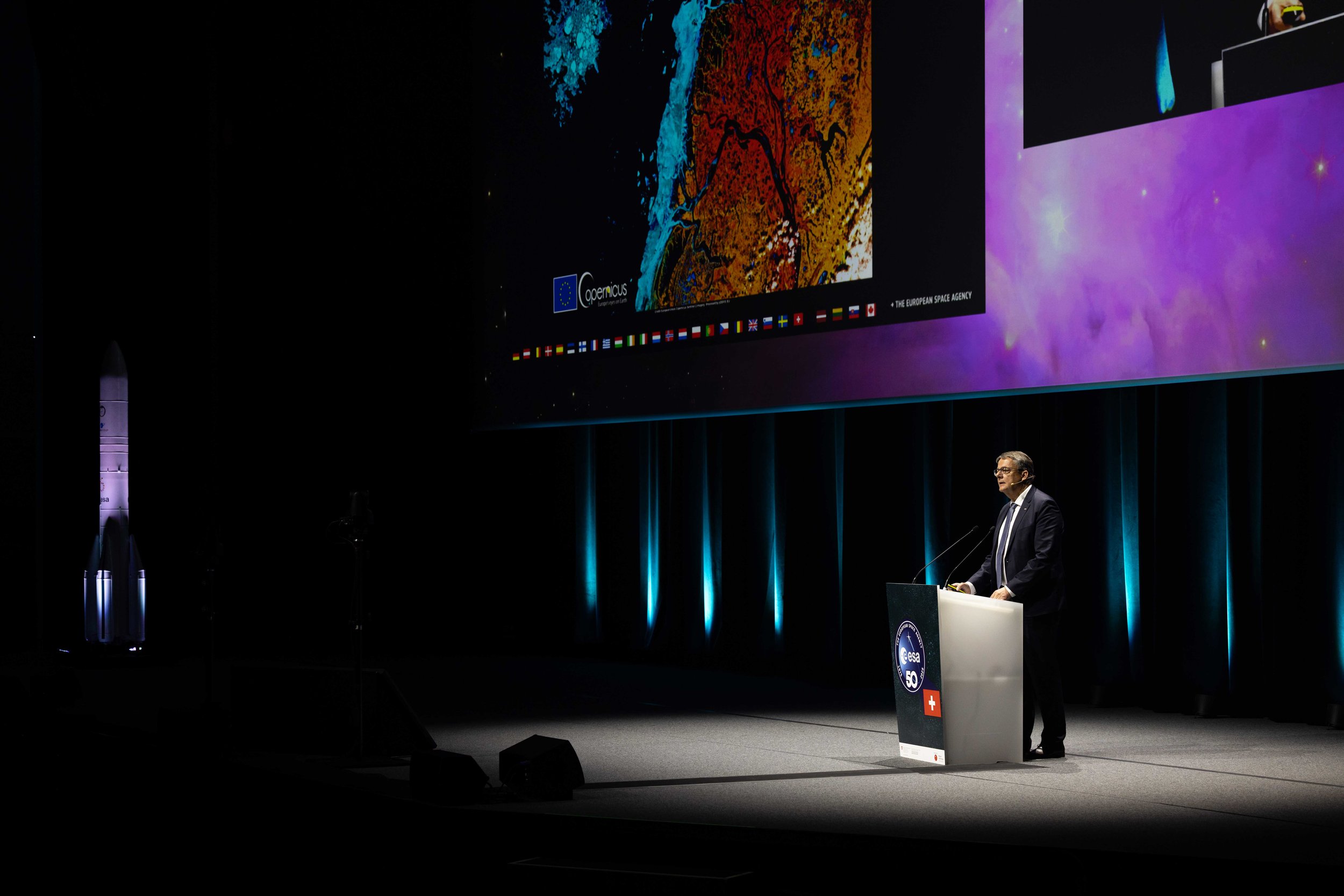
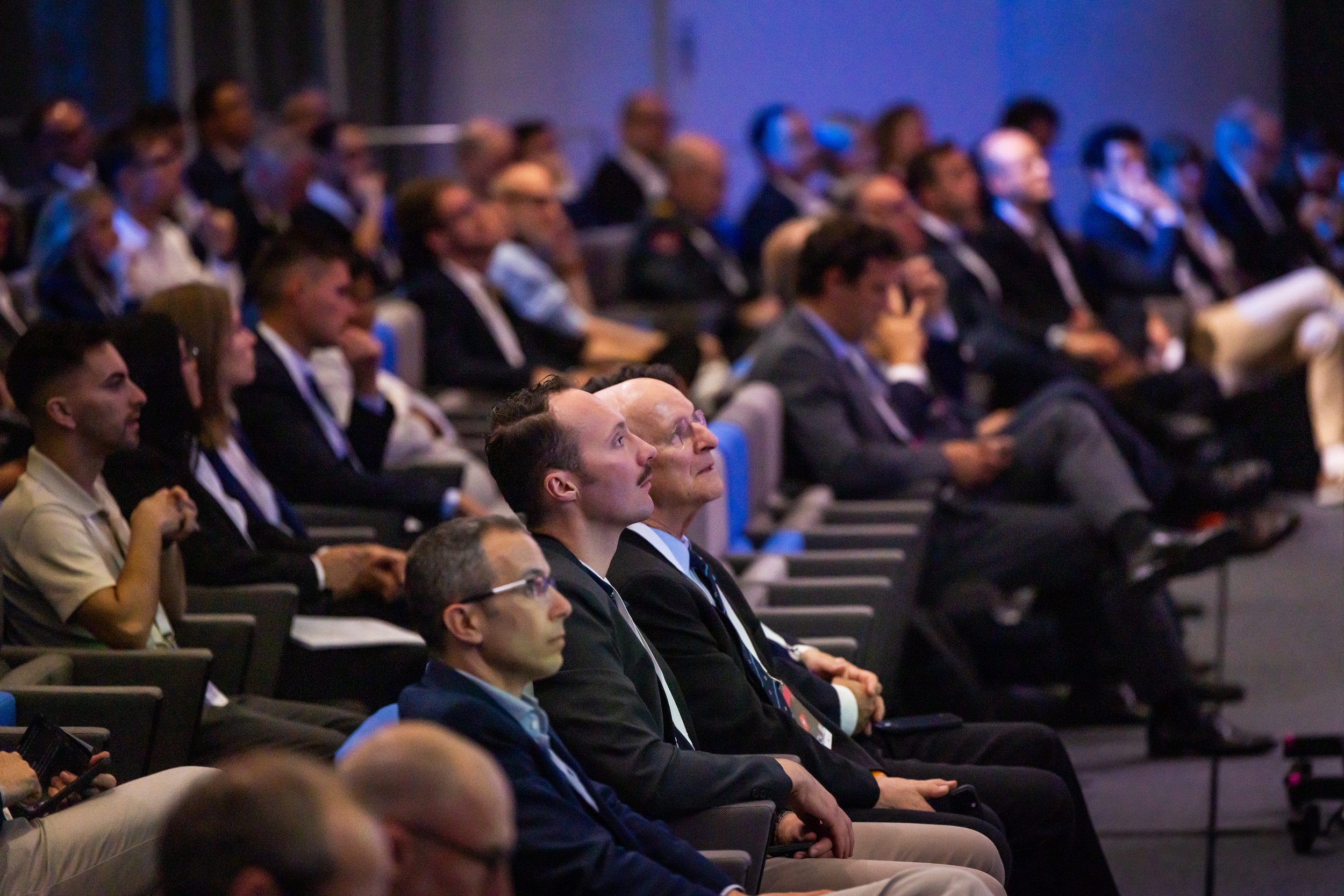
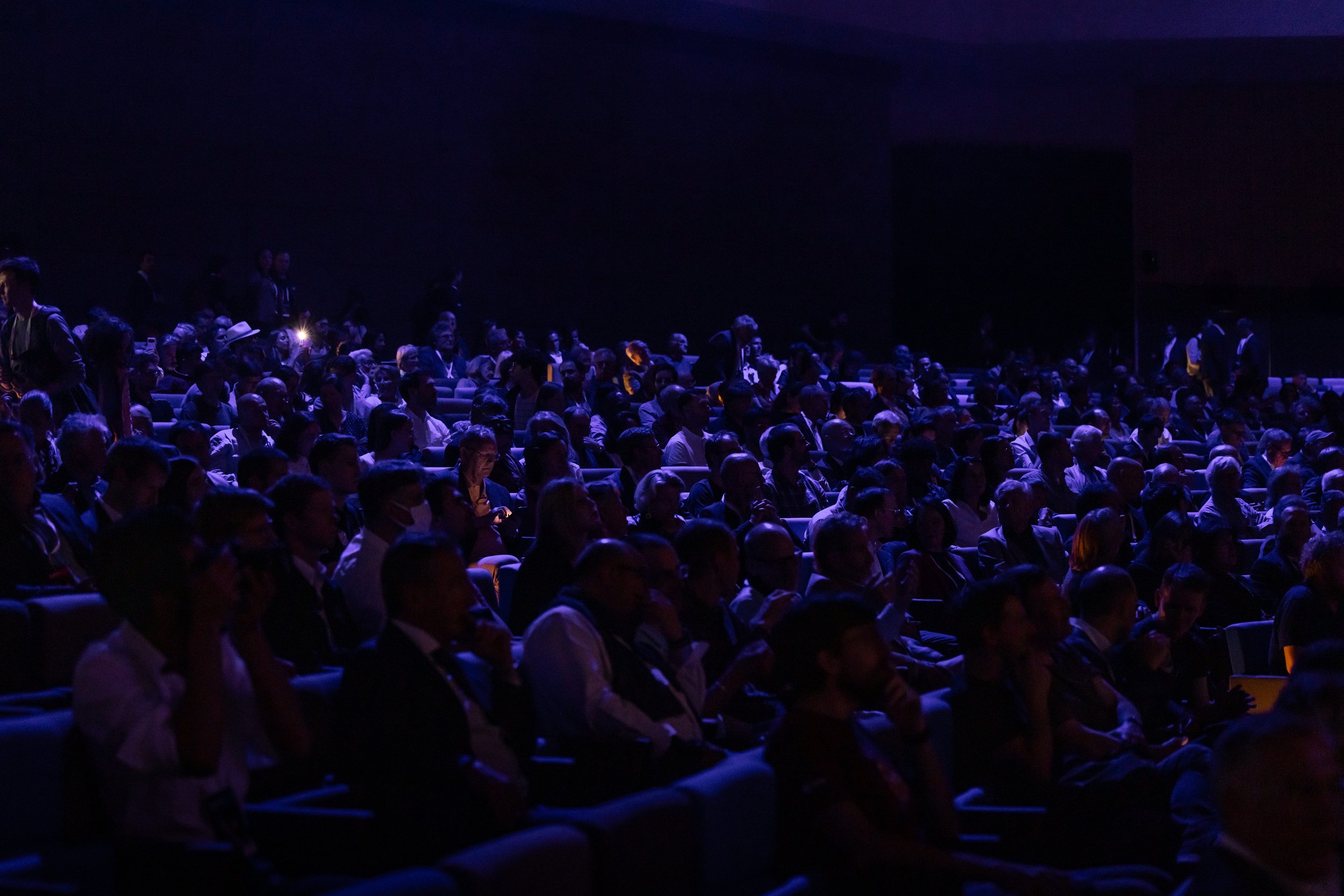
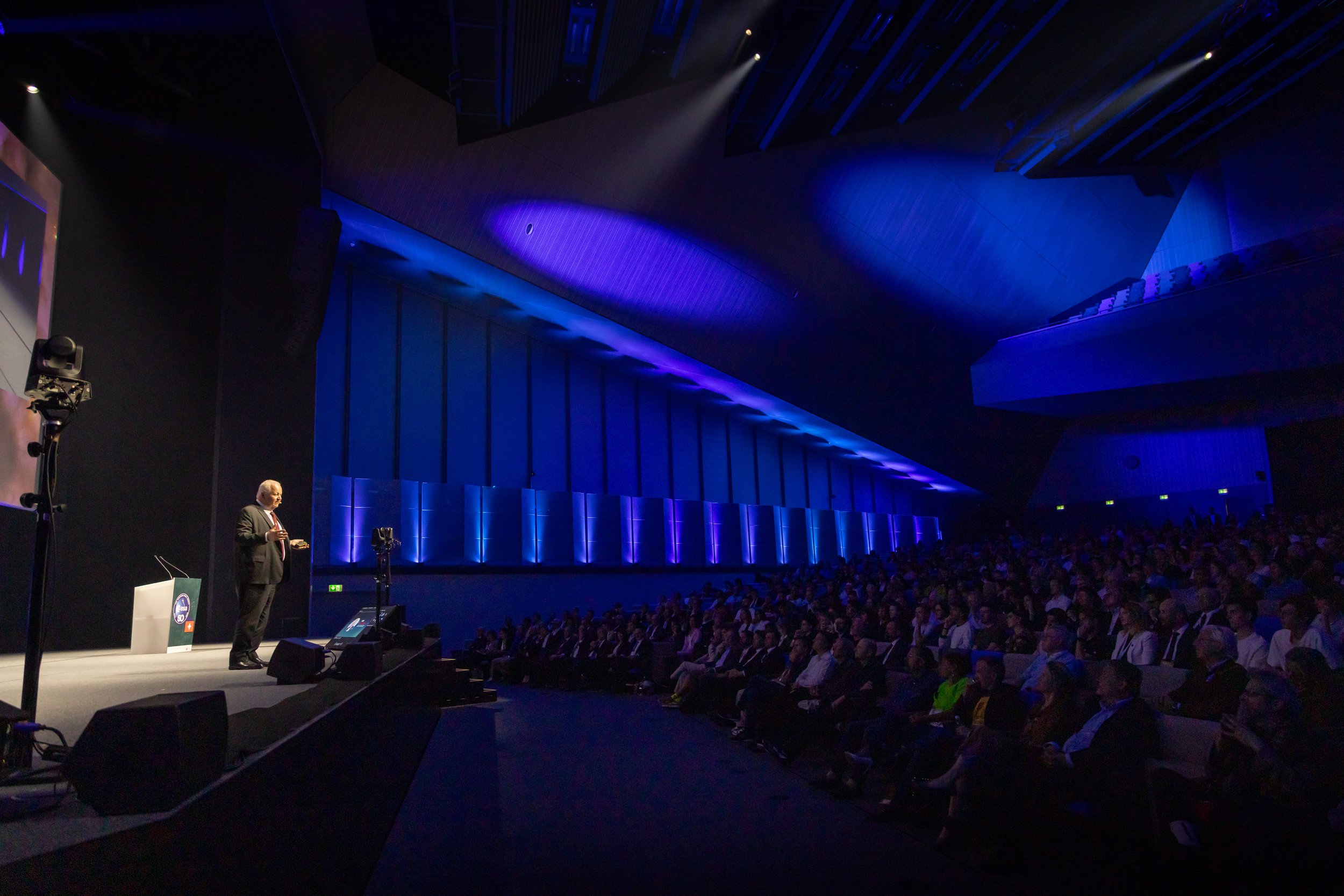
Reliving our two unforgettable events! 🚀
Watch these three videos for a glimpse of the incredible energy, inspiring people, and memorable moments we shared with our partners, speakers, staff and participants.
🎉 Event Highlights:
300 participants at the Space Community Days 2025
250 One-to-One Meetings scheduled
1'000+ participants at the ESA 50 Years celebration
A heartfelt thank you to everyone who made these events so unique!
Short aftermovie of the celebration
Recap video with key moments
Video shared by the SwissTech Convention Center, where the Space Community Days and the ESA 50th Anniversary celebration took place.
SXS PRESS
All media coverage of ESA's 50th anniversary celebration (May, 26th 2025)
A heartfelt thank you to RTS - Radio Télévision Suisse for the fantastic coverage of ESA’s 50th anniversary. Click here to discover it. The video captures just a glimpse of an inspiring and action-packed day, highlighted by an exceptional lineup of speakers: Josef Aschbacher, Marco Sieber, Claude Nicollier, Renato Krpoun, and Prof. Dr. Martina Hirayama.
La Tribune de Genève published an article on May 24, 2025, highlighting Switzerland’s past, present, and future achievements within the space ecosystem - including its key contributions to ESA. Grégoire Bourban, Head of Space Exchange Switzerland, shared his insights in an interview, shedding light on Switzerland’s role and impact in the evolving landscape of space exploration.
Read the full article below or click here to visit the newspaper’s website.
3. Our event is featured in a press release available on the website of the State Secretariat for Education, Research and Innovation (SERI), underlining its relevance in the Swiss context. Click here to read more.
4. ESA 50 years anniversary in 2025 marks five decades of European cooperation in space exploration. Key achievements include independent launch capabilities, planetary missions, and technologies used in daily life. As a founding member, Switzerland benefits through scientific and industrial innovation, while the ESA looks ahead to future challenges in a rapidly evolving space sector. Learn more in this article from Renato Krpoun, Head of the Space Affairs Division at SERI (State Secretariat for Education, Research and Innovation).
5. The European Space Agency (ESA) marks its 50th anniversary, underscoring its position as a global leader in space exploration, especially in Earth observation with the Copernicus program. As it looks to the future, ESA is striving for increased independence in human spaceflight. Discover Renato Krpoun’s insights on this milestone and the agency’s future ambitions, here.
NEWS
Fantasy Basel 2025
Artificial Intelligence is everywhere
Space eXchange Switzerland (SXS) was excited to once again take part in this year’s FANTASY BASEL – The Swiss Comic Con as a partner of the Swiss Space Museum. Artificial Intelligence is everywhere – including in space. A good reason to take a closer look at the fascinating topic of “AI in Space.”
At the SXS booth, visitors had the opportunity to discover how artificial intelligence is being used in space research and exploration. They met experts who use AI to process massive amounts of data from space telescopes or develop models to predict solar activity – and they were even able to take a journey to space with our AI-powered photo booth!
